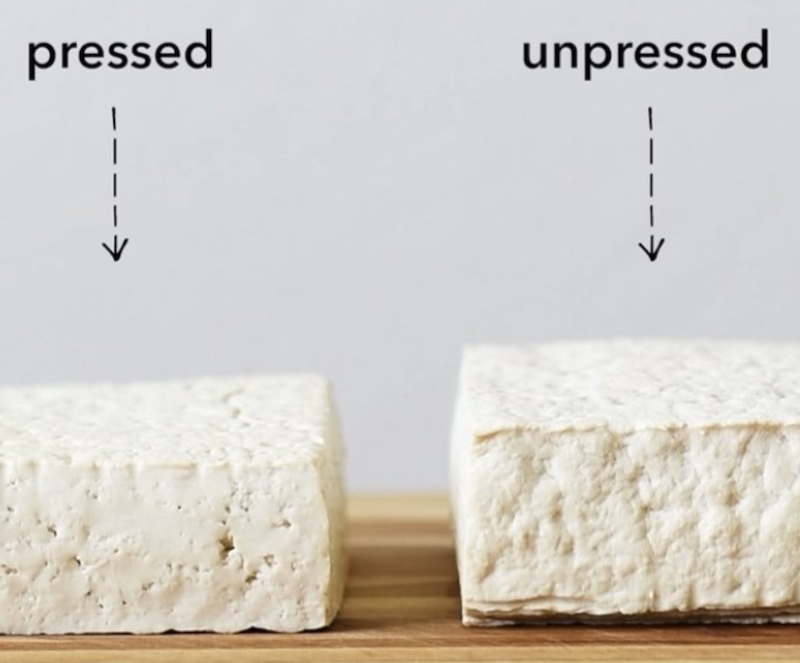This post was originally published on Al Jazeera – Breaking News, World News and Video from Al Jazeera.
-
Iran has dismissed scepticism over its development of hypersonic missiles, which could reach Israel in seven minutes.
-
Erdogan's rhetoric may be unfriendly towards Greece, but his predecessors were outright dangerous, many Greeks say.
This post was originally published on Al Jazeera – Breaking News, World News and Video from Al Jazeera.
-
The palatial modern art museum was badly damaged in the explosion that rocked the Lebanese capital.
This post was originally published on Al Jazeera – Breaking News, World News and Video from Al Jazeera.
-
Health, tech and saved wealth could turn an ageing workforce from an economic challenge into an advantage, say experts.
This post was originally published on Al Jazeera – Breaking News, World News and Video from Al Jazeera.
-
A fifth-generation fisherman finds an innovative way to remove and recycle plastic waste from the Mediterranean Sea.
This post was originally published on Al Jazeera – Breaking News, World News and Video from Al Jazeera.
-

In a speech delivered during last week, Prime Minister Anthony Albanese has emphasised the significance of the Voice of Parliament in redefining Australia as a nation. Speaking at the Lowitja O’Donoghue Oration in Adelaide, the Prime Minister expressed his belief that the Voice to Parliament could serve as a transformative force, even surpassing the achievements of the 1967 referendum. With passion and conviction, he called upon the nation to embrace a better future, one that addresses the historical injustices experienced by First Nations people and invited all Australians to walk together towards progress.
However, there are stark differences between the political landscape of 1967 and the present day. The Liberal Party today is a radical different party to the one of the Menzies era, and fear, loathing, and hatred have become more potent tools for mobilisation today: it was obvious that the federal Liberal Party was never going to support the Voice to Parliament and even before the legislation for the referendum was presented in Parliament, they had declared their allegiance to the “no” campaign. In a continuing pattern of misrepresentation and deceit, they have distorted information and levied baseless accusations against Prime Minister Albanese who, since his election victory in May 2022, has advocated for positive change and sought to address the issues facing Indigenous Australia.
The Prime Minister has been criticised in some quarters for his lack of courage and timidity on other reform initiatives but these criticisms cannot be levelled at him on the Voice to Parliament, driven by a conviction that it is ‘the right thing to do’, regardless of political ramifications. Also, there are significant challenges inherent in convincing the rest of Australia to support an initiative that seeks to rectify historical injustices, while facing staunch conservative opposition.
Among the opponents of the Voice to Parliament, speculation about ‘a secret plan’ to overturn future legislation has gained traction, despite a lack of any substantiation, as no such provision exists in the proposal for the Voice to Parliament, and the propagators of these unfounded theories often resort to ‘dog-whistle’ politics through media outlets such as News Corporation. This is in contrast to the extensive reports from the Solicitor–General which suggest that the Voice to Parliament will possess no legislative power, and primarily serve as a consultative body for Indigenous voices to be heard – which has been the intention of the Voice to Parliament all along.
In a misguided attempt to discredit the Voice to Parliament, some conservative groups are questioning its legitimacy by proposing the inclusion of other ethnic groups, such as the Chinese or Lebanese communities. Yet, this argument conveniently ignores the historical context and the unique plight faced by Indigenous Australians. Recognising the enduring history of Indigenous connection to the land, which spans over 60,000 years, it is essential to acknowledge the injustices suffered by these communities since 1788. While the mistreatment of other immigrant groups throughout Australia’s history of white settlement/invasion needs to be acknowledged, it pales in comparison to the systemic displacement and oppression faced by Indigenous Australians.
The Liberal Party race-based political games
It has to be remembered that the impetus of the Voice to Parliament can be traced back to the bipartisan act initiated by the Prime Minister at the time, Malcolm Turnbull, and then Leader of the Opposition, Bill Shorten in 2015, which later led to the release of the Uluru Statement from the Heart. While the subsequent Morrison government rejected incorporating the Voice to Parliament into the Constitution, it did at least express some lukewarm support for a ‘voice to government’. However, current opposition leader Peter Dutton has totally rejected the idea of federal government involvement and instead proposes limited council area involvement that would render the Voice to Parliament ineffective, a strategy which reveals the Liberal Party’s focus on political gamesmanship rather than genuine progress for First Nations people.
Critics argue that the Liberal Party’s motives extend beyond mere opposition to the Voice to Parliament, with suggestions that many prominent members of the party – such as Dutton and former Prime Minister Tony Abbott – wish to protect a vision of Australia that maintains an Anglosphere dominance and ‘white’ authority. While not overtly expressed, this power dynamic manifests in other ways, including through deliberate misinformation campaigns and the unleashing of anonymous trolls on social media platforms.
The Liberal Party’s campaign against the Voice of Parliament has included accusations of Albanese’s “moral blackmail” and trying to define and impose his views on Australia’s national conscience. It also matches up with the Liberal Party’s previous support for One Nation’s “it’s okay to be white” motion in the Senate in 2018, and the views of Senator George Brandis in 2014, that “people have the right to be bigots”.
While the Liberal Party’s tactics are obviously calculated for their political benefit, it’s a strategy which could ultimately backfire. The changing demographics of Australia, with a younger generation less inclined to respond to racist dog-whistling, suggest that the party’s strategy is out of touch with the evolving social landscape. Racism, though still present in Australia, is gradually losing its grip on society, and the majority of Australians are receptive to addressing historical injustices and valuing equality and inclusivity.
The Voice to Parliament is not without its imperfections and, once established – if it is successful in the forthcoming referendum – will need to undergo careful scrutiny to ensure fairness, openness, and broad representation within the Indigenous community which, in turn, can address long-ignored issues. The Voice to Parliament represents a crucial step toward a more inclusive and equitable society, signaling a commitment to progress and Indigenous empowerment.
As the path toward achieving the Voice to Parliament unfolds, it is evident that opposition and misrepresentations will persist. Australia stands on the precipice of an opportunity to redefine itself as a nation committed to rectifying past injustices and paving the way for a better future, where Indigenous voices are heard, respected, and valued. The journey may be challenging, but the Voice to Parliament represents a critical beacon of hope, progress, and unity for all Australians.
The post The conservative racist attacks on the Voice to Parliament appeared first on New Politics.
This post was originally published on New Politics.
-

In a week dominated by revelations surrounding PwC – one of the world’s largest accounting firms – attention has been drawn to the alarming leaking of secret information from the Australian Taxation Office (ATO) to other consulting firms and PwC’s clients. The leaked information, which potentially holds valuable insights into the Australian government’s plans regarding multinational corporations and taxation, has sparked a heated debate on the issue of government outsourcing. It is now becoming evident that the disclosures made so far merely scratch the surface, with indications of more revelations to come, not just concerning PwC but other consulting firms as well.
The magnitude of this issue becomes apparent when examining the exorbitant amounts of money spent on consultants and outsourcing: during the final year of the Morrison government, an astonishing $20.8 billion was allocated to these services. To put this into perspective, this figure is equivalent to employing 54,000 full-time staff or 37 per cent of the entire federal government public service. While the Albanese government has expressed its intention to address this issue and curtail excessive outsourcing, immediate reductions are not feasible due to ongoing contracts that cannot be terminated abruptly, some of which have a duration spanning several years.
It is essential to acknowledge that certain areas of government activity require the specialised expertise of the private sector and reintegrating these functions back into the public service quickly poses significant challenges. It is now clear, however, that no amount of confidentiality agreements with external providers can guarantee the protection of sensitive material belonging to the federal government, emphasising the urgent need for a comprehensive review of the outsourcing practices.
A critical aspect that emerged during Senate hearings this week is that relationship between the ‘Big Four’ accounting firms – PwC, KPMG, EY and Deloitte – and political donations to parties on both sides of the political spectrum – over $4 million over the past decade. The conflict of interest arising from such financial contributions casts doubt on the fairness and impartiality of policy-making processes and there is a need for more robust regulations prohibiting these donations, considering their potential influence over governmental decisions and elections.
The Australian Greens Senator Barbara Pocock questioned Peter de Cure from the Tax Practitioners Board during the Senate hearings, and his responses shed light on the inadequacy of the current system’s response to the actions of PwC. The failure to consider whether PwC breached professional codes, particularly in acting honestly and with integrity, has raised serious concerns about the resolve and effectiveness of oversight committees. The absence of any referrals for financial penalties, despite the gravity of the situation, adds to the growing skepticism surrounding the regulatory mechanisms in place.
The ongoing Senate hearings continue to uncover shocking details, and it is anticipated that more revelations will follow. Beyond the questionable behaviour of individual consultants at PwC – such as the former head of international tax, Peter Collins – the larger issue at hand is the overreliance on external expertise, which has steadily increased since the 1980s. Influenced by neoliberal ideologies and a desire to distance themselves from anything remotely associated with communism after the fall of the Berlin Wall in 1989, governments embraced the outsourcing trend, often to an extreme extent. However, the time has come for a substantial reduction in this reliance on the private sector, as the detrimental effects of excessive outsourcing become increasingly evident.
The issue of outsourcing also extends beyond consultants to the management of procurement from the private sector on behalf of the government. In the case of PwC, the lack of effective checks and balances allowed for the leakage of sensitive government information, exposing potential vulnerabilities in the system.
The current situation has brought into question the role of other bodies, such as the Australian Federal Police, in overseeing and addressing potential breaches. The revelation that the AFP received information about a confidentiality breach involving PwC back in 2018, without taking substantial action, highlights the need for a thorough investigation into the relationship between PwC, government agencies, and regulatory bodies. The integrity and trustworthiness of the government are vital for the effective functioning of democracy, and any compromise in these areas could have serious consequences.
Beyond the PwC scandal, there is a growing realisation that a broader re-evaluation of outsourcing practices is necessary. Privatisation, ethics, and the alignment of private sector interests with public goals are all critical aspects that demand attention. While the private sector can play a role in certain areas, infrastructure development and vital services are best managed by the government to ensure the public interest is served and prevent profit gouging at public expense.
Although calls for a Royal Commission have been made, some argue that a complete overhaul of the system, while maintaining essential services, may be a more effective approach. Rebuilding government operations from scratch with transparency, accountability, and the public interest at the forefront, could address the underlying issues that have led to the current state of affairs.
With the potential for further revelations and ongoing Senate hearings, the debate surrounding the role of consultants and the future of government outsourcing is likely to intensify in the coming weeks.
The Albanese government faces the challenge of striking a balance between utilising external expertise when needed and safeguarding national interests. It is a delicate task that requires careful consideration and a commitment to transparency, integrity, and the public interest.
The post PwC scandal sheds light on consultants and raises concerns over conflicts of interest appeared first on New Politics.
This post was originally published on New Politics.
-

In a surprising turn of events, Mark McGowan, one of the most successful political leaders in Australian history, resigned this week as the Premier of Western Australia. McGowan, who had held the position for six years, cited exhaustion and a lack of energy to effectively continue in the role.
Having been in Parliament since 1996, McGowan’s political career spans over two decades. During his time as premier, he successfully implemented a progressive agenda in a state not traditionally known for its progressiveness. Despite facing criticisms of being too reliant on the mining industry and favouring media proprietors, McGowan enjoyed high approval ratings and managed the state’s finances competently.
Under McGowan’s leadership, Western Australia navigated the challenges posed by the COVID-19 pandemic successfully. His management of the crisis earned him widespread praise, and this was followed up with the Labor Party secured a resounding victory in the 2021 election, winning 53 of the 59 lower House seats. With the control of the upper house as well, the Labor Party seems set for at least two more terms in office.
Resigning on his own terms, McGowan avoided the pitfalls that often befall long-term political leaders. The toll of the job, the constant decision-making, media pressure, and responsibilities took a personal toll on him. Recognising his limitations, he decided it was the right time to step away from the role he loved.
McGowan’s resignation is unique in the sense that he chose to leave at a time of his own choosing, rather than facing an election loss, a leadership challenge, or a scandal. The legacy McGowan leaves behind is a testament to his competence, affability, and successful governance.
While some predict a drop in support for the Labor Party following McGowan’s resignation, history has shown that state leadership transitions can have mixed outcomes. Previous resignations of successful leaders in states such as Victoria, Queensland, New South Wales, and Tasmania have resulted in varying degrees of political challenges for their respective parties.
The impact of McGowan’s departure on federal politics in Western Australia remains uncertain. While his popularity undoubtedly influenced the federal Labor Party’s success in the 2022 federal election, it is unclear how a change in state leadership will affect future federal outcomes. Nevertheless, McGowan’s legacy as a highly successful premier of Western Australia is expected to endure and, as time passes, a clearer assessment of this legacy will emerge.
While his critics point to certain issues like the state’s reliance on the mining industry, ongoing challenges in the hospital system, and several major incidents in the Banksia Hill juvenile detention centre, his accomplishments in managing the pandemic, overseeing the state’s finances, and implementing progressive policies are noteworthy. With a high approval rating and significant electoral success, McGowan is likely to be remembered as one of the great premiers of Western Australia.
The resignation of a leader of McGowan’s stature creates a void that will need to be filled. The new premier, Roger Cook, may face challenges in replicating the popularity and cut-through that McGowan achieved. However, with the support and groundwork laid by his predecessor, the Labor Party in Western Australia will still have a solid chance of success at the next state election, due in 2025.
As Western Australia bids farewell to Mark McGowan, his resignation marks the end of an era characterised by successful governance, progressive policies, and a strong mandate from the electorate. While the future holds uncertainties, McGowan’s contribution to the state will be remembered, and his departure opens up new opportunities for the state’s political landscape.
The post McGowan’s resignation leaves behind a model for successful political leadership appeared first on New Politics.
This post was originally published on New Politics.
-

Racism in the media is a deeply entrenched issue that requires urgent attention. The recent case of ABC journalist Stan Grant, who has taken indefinite leave after facing a torrent of racist abuse, highlights the pervasive nature of discrimination faced by people of colour, women, and individuals from migrant backgrounds in the media and political spheres. Grant’s decision to step away from his role comes as a culmination of ongoing racist attacks he has experienced throughout his career.
It is important to recognise the role played by News Corporation, led by Rupert Murdoch, in perpetuating racism within the media landscape. News Corporation has a history of amplifying racism, as seen in their coverage of incidents such as Adam Goodes – hounded out of the AFL in 2015 – the Black Lives Matter movement, the ‘African gangs’ agenda pushed by the Liberal Party during 2019, and the current debate surrounding the Voice to Parliament. Their influence in shaping public opinion and promoting divisive narratives cannot be ignored.
However, it is not only News Corporation perpetuating racism in the media. Many other media outlets – including the ABC, Nine Media, Seven Network, Ten Media, and The Guardian – often fail to adequately address and combat racism. While some pay lip service to the issue, others – such as News Corporation – display outright hostility. This lack of action and accountability allows racism to persist within the industry, hindering progress towards a more inclusive society.
The power of social media exacerbates the problem, acting as a platform for hate speech and racist abuse. While discussions about combating racism often emerge in response to such incidents, little is done to address the root causes. It is crucial for the media industry to confront its own role in perpetuating racism and take concrete steps to rectify the situation.
Grant’s departure also raises concerns about the support offered by ABC management. He criticised the lack of support he received amid the abusive attacks and expressed disappointment in the ABC’s failure to address the role of News Corporation in fueling this racism. Grant’s sentiments were echoed by ABC News head Justin Stevens and managing director David Anderson, who accused News Corporation of relentlessly attacking the public broadcaster.
The relationship between the ABC and News Corporation has long been contentious, with News Corporation often criticising the ABC. The recent revelations at Senate estimate hearings, where ABC executives were questioned by Senator Sarah Hanson-Young, shed light on the extent of News Corporation’s influence and the lack of action taken by ABC management.
One crucial step towards combating racism in the media is reassessing the association between the ABC and News Corporation. Constantly inviting News Corporation journalists onto ABC programs should be reconsidered, as it provides a platform to a corporate entity that consistently displays disdain for the public broadcaster. Instead, the ABC should prioritise supporting marginalised voices and fostering a more inclusive and equitable media landscape.
Addressing racism requires a comprehensive approach that goes beyond overt acts of discrimination. It requires examining the language, narratives, and perspectives used in media coverage. The media industry must strive to be more inclusive, ensuring that diverse voices are not only heard but also respected and valued.
It is time for the media industry to reflect on its role in perpetuating racism and take meaningful action to bring about positive change. By supporting independent journalism and demanding accountability, we can work towards a society that values diversity, fosters respectful dialogue, and challenges discriminatory practices in all forms.
The battle for balanced reporting
It has to be remembered that News Corporation in Britain came under fire for unethical practices –the tapping of a deceased girl’s phone, with the aim of uncovering private messages, with many of the individuals responsible for this breach of ethics still retaining their positions within the company. This incident highlights that it was not an isolated event or a mere lapse in judgment by a few individuals, but rather a systemic problem within the organisation. In the context of this obvious lack of ethics, ABC programs such as Insiders should consider banning journalists from News Corporation appearing as panellists.
During the recent broadcast of King Charles’ coronation, the ABC organised a panel discussion on colonialism and its impact on Indigenous Australians. Invited guests, including Stan Grant, Craig Foster, Teela Reed, and Julian Leeser, engaged in a conversation about this critical topic. Surprisingly, the abuse and backlash were primarily directed at Stan Grant, despite him being an invited guest rather than the organiser of the panel. Conservative groups, including News Corporation, the Australian Monarchist League, and supporters of the royal family, spearheaded the offensive against Grant.
Critics argued that the timing of the discussion, which coincided with the coronation, was inappropriate. However, the conversation about the effects of colonisation and the future of the monarchy in Australia is crucial and should not be limited by ceremonial events. The strong negative reaction from conservatives reflects a resistance to open dialogue and a refusal to acknowledge the complexities of Australia’s history.
The response from News Corporation has been a doubling down on their attacks against the ABC, attempting to distance themselves from any association with the racist abuse directed at Stan Grant and other individuals. This denial of responsibility is disingenuous, as News Corporation has played a significant role in shaping public discourse and perpetuating divisive narratives.
While acknowledging that the ABC is not perfect, it is evident that racism in the media remains a persistent problem. Stan Grant highlighted the lack of support from ABC management during this challenging time. This lack of understanding and empathy can be attributed to the absence of Indigenous representation in senior management and the board of the ABC, and this limited diversity within these decision-making positions perpetuates a dismissive attitude towards racist attacks and prevents meaningful change.
Addressing these issues requires a comprehensive overhaul of the ABC’s board and management. As a nation, Australia must mature and foster a broader range of debates that reflect the diversity of its population. However, vested interests often impede progress, with News Corporation acting as the mouthpiece for those resisting change.
Senator Hanson-Young has introduced legislation for a federal inquiry into News Corporation – the outcome of this inquiry at this stage remains uncertain, but it represents an opportunity to examine the influence and practices of Rupert Murdoch and News Corporation in Australia. At 92 years old, it is essential for Murdoch to understand the criticisms leveled against him and the negative impact he has had on Australian media and politics, before he passes away.
In an ideal world, Murdoch would have faced legal consequences after the Leveson inquiry in 2011. The decline of print media, exacerbated by online platforms, has already weakened the power of traditional press barons like Murdoch and the dwindling subscription numbers and waning influence of News Corporation indicate a shifting media landscape.
As Australia strives for a more inclusive and equitable society, media organisations must recognise the need for greater diversity in their ranks. It is time for the mainstream media to evolve and accurately reflect the multicultural fabric of the nation. While change may be slow, it is crucial to challenge the prevailing orthodoxy and work towards a media landscape that embraces all perspectives. Only then can Australia truly mature as an independent nation and move away from the divisive media narratives that have plagued its history.
The post Racist media and attack-dog News Corp appeared first on New Politics.
This post was originally published on New Politics.
-

In what is being hailed as a year of substantial achievements, the Labor government has completed its first year in office. Comparisons have been drawn to the successful first year of Hawke government from 1983 to 1984, highlighting the government’s progress on key priorities outlined during the 2022 election campaign. While significant strides have been made in most areas, challenges persist, particularly in climate change policy and economic reform. However, the government’s focus on competence and credibility has resonated with the public, leading to an overall positive perception of their first year in power.
The Labor government’s eight key priorities included establishing an anti-corruption commission, holding an employment summit, implementing the Respect At Work report recommendations, addressing climate change, reworking national agencies, reforming the aged care system, and making childcare more affordable.
The National Anti-Corruption Commission commences on 1 July 2023, many recommendations from the Respect At Work report have been implemented and the government is also on track to hold a referendum on a Voice to Parliament by the end of the year. Additionally, the Job Summit was held in September last year, several ideologically-driven national agencies were either abolished or restructured, aged care workers will receive a 15 per cent pay increase, and $5.4 billion has been allocated to make childcare cheaper.
However, the government’s progress on climate change policy has faltered and has not matched the rhetoric – certainly, the government has made several announcements and commitments to emissions reductions and electric vehicle policy, but more action that needs to be taken if Australia is to meet its global environmental targets.
Whistle-blower legislation is yet to be fully developed and while the federal Court case against Bernard Collaery was dropped in late 2022, the cases against Richard Boyle and David McBride are still continuing and they need to cease. Prime Minister Anthony Albanese has made representations to the United States government, but Julian Assange is still languishing in Belmarsh Prison.
There are still over 1,100 refugees in closed immigration detention, including over 400 who have remained in detention for over two years. There were long-standing and far-reaching calls to substantially increase Jobseeker payments, but the government decided to ignore these and only raised the rate by $20 per week.
Rising inflation and cost-of-living pressures have also presented political difficulties for the government. Energy prices and concerns in areas such as climate change policy and economic reform require continued attention and action.
Despite these issues, it seems that Albanese’s focus on competence and credibility in government operations has been appreciated by the electorate and the absence of constant conflicts and culture wars, which were characteristic of previous Coalition governments, has been a welcome change. The government’s commitment to governing effectively and efficiently, rather than stoking fear and division, has resonated with the electorate’s desire for a stable administration.
Some critics have questioned the government’s cautious approach and its focus on setting up the basics of good governance rather than implementing broader progressive Labor policies. However, the government’s caution may stem from previous experiences, particularly the tumultuous Rudd–Gillard years from 2007 to 2013.
While there is still room for improvement and ongoing challenges to address, the Labor government has made significant progress in its first year. Rebuilding programs which can work in the public interest, and restoring trust in politics require careful planning and execution. The government’s commitment to competence and credibility has resonated positively with the public, leading to a more civil and respectful political environment.
Looking ahead, the government’s focus on long-term goals and strategic decision-making may contribute to their ability to retain power in future elections. However, it is crucial to continue addressing issues and implementing policies that align with public expectations and demands.
Calls for more action in the second year
Moving into its second year in office, in the context of a depleted and demoralised Liberal Party, the Labor government will need to ensure complacency doesn’t grow with Caucus and continues a commitment to surpassing the performance of previous administrations. The Morrison government between 2019–22 cannot serve as any form of yardstick of political performance, an administration riddled with incompetence and corruption, which fell far short of expected levels of good governance.
Scott Morrison’s tenure as Prime Minister was demonstrably poor, particularly in handling major events such as the 2019 bushfires and the subsequent COVID pandemic which commenced in 2020. Albanese, on the other hand, is yet to face similar challenges. The ability to lead during difficult times is seen as a true test of leadership, and although Morrison clearly failed in these tests, Albanese’s mettle remains untested, though optimism surrounds his potential performance.
The Labor government’s focus lies primarily on reworking the economy to benefit the people and reversing what it perceives as unfavourable policies implemented by previous Coalition governments. This endeavour is expected to be a significant test for the current administration, potentially shaping its term in office. While some supporters have voiced their dissatisfaction with the progress made thus far, politics is a delicate balance of achieving what is possible under prevailing circumstances.
Despite the absence of revolutionary change – which has frustrated its supporters – the Labor government has successfully fostered stability during its first year. Nevertheless, there are areas that require immediate attention and improvement. Environmental concerns, such as coal mine approvals, must be reassessed as a higher priority, considering the urgency of addressing climate change. Additionally, the welfare system is still in need of substantial reform on multiple fronts. These issues are identified as crucial matters that demand swift action.
Overall, the Labor government’s performance in its first year has been competent and polished. While recognising the need for ongoing progress, opinion polls have consistently provided the government with a positive assessment. There is a general acknowledgement that more work lies ahead, both in comparison to previous administrations and in achieving the government’s own goals. As the nation faces an uncertain future, the Labor government remains focused on realising its vision for a better Australia.
The post Labor’s first year marked by achievement and focus on competence appeared first on New Politics.
This post was originally published on New Politics.
-

In the midst of discussions surrounding the recent budget and the opposition’s reply, the immediate political prospects of the Liberal–National Coalition remain uncertain. While the Budget Reply speech failed to provide substantial insights into the party’s direction, it is important to note that, at this stage of the political cycle, such details are not usually expected. However, the lack of clarity regarding the Coalition’s agenda, particularly if they are to regain power, is concerning.
The announcement of Stuart Robert’s retirement from politics adds another layer of complexity to this situation. Although the date of his departure is yet to be determined, it is likely to happen sooner rather than later. Robert represents the Queensland seat of Fadden, which is a stronghold for Peter Dutton and the Liberal–National Party, holding 21 of the 30 seats in Queensland. With Fadden secured by a margin of 10.6 per cent by the L–NP, it would be difficult for them to lose the seat. Nonetheless, Robert’s retirement raises questions about the future of the party and the path they hope to carve out for themselves.
The rumours still persist regarding former leader Scott Morrison’s potential departure from politics – Morrison has taken up an advisory role with the Center for New American Security, a smaller military thinktank based in the United States. These upcoming changes in federal politics indicate a period of transition and uncertainty on the horizon.
Robert’s retirement from politics can be seen as a positive move. As one of the ministers responsible for the Robodebt scandal, along Scott Morrison, his departure presents an opportunity for the Liberal–National Party to define its future trajectory. It also signals a chance to address the controversial actions taken by Robert and Morrison in relation to Robodebt and for the types of candidates it chooses in future preselections.
Looking at the internal dynamics within the Liberal Party, there seems to be a glimmer of hope. Katherine Deves overlooked for the vacant Senate seat in NSW – reportedly, she was told not to stand – may be a sign of wiser and cooler heads prevailing. Perhaps there are some in the Liberal Party who recognise that the electoral appeal of far-right ideologies is diminishing. Losing many elections across federal, state and territory jurisdictions should be a wake-up call, urging the party to consider alternative approaches. The upcoming byelections in Fadden and Cook will be telling, as they could shape the party’s future direction.
Robert’s questionable conduct, including accumulating unjustified expenses and the Robodebt debacle, does not leave a positive legacy. His fallout with Morrison over the Robodebt issue also further isolates him in opposition, leaving him with few allies. Considering the allegations surrounding Robert and any future National Anti-Corruption Commission (NACC) investigations, it is likely that he will be one of the prominent figures involved – it should be noted that these are only allegations at this stage, but they suggest that Robert’s exit from politics is a welcome development.
Dutton is just revisiting the Howard years
In his Budget Reply speech on Thursday night, Leader of the Opposition, Peter Dutton, attempted to rally his base supporters – possibly an appeal to One Nation supporters – however, his speech failed to impress and raised concerns about the direction of the party. Dutton’s attacks on the idea of a “big Australia” and immigration, along with his criticism of the increase in public servants in Canberra, reflected a continuation of the policies of past Liberal leaders such as Scott Morrison, Tony Abbott, and John Howard. Unfortunately for Dutton and the party, this approach is outdated and out of touch with contemporary politics.
One of Dutton’s main messages focused on the failures of the Labor Party, particularly on higher power prices, higher unemployment, and higher taxes. While there may be some validity to the argument about power prices, the claims of higher unemployment and higher taxes lack substantial evidence. It appears that Dutton is resorting to the same old tactics that have become synonymous with the Liberal Party, failing to offer fresh ideas or progressive solutions.
Demographically, the Liberal Party is facing a disastrous situation. The under-35 demographic shows little support for the party, unlike in the past when it enjoyed higher levels of support from young voters. The declining trend in younger voters aligning with the Liberal Party is alarming and indicates a lack of foundation upon which the party can build as individuals grow older and more conservative. While it is true that numbers, not just age, matter in politics, the fact remains that the Liberal Party is struggling to attract and retain a diverse voter base. Unless a substantial change occurs within the party, they face an uphill battle in future elections.
There are speculations within the Liberal Party about alternative leadership options, particularly the deputy leader Sussan Ley. Although there isn’t an active push to make her the leader at present, the party seems to be preparing for potential changes in leadership if the situation deteriorates further. Ley’s engagement in a listening tour and increased participation in parliamentary Question Time reflects her aspirations for leadership. However, it is worth noting that the Liberal Party, like any political entity, must be ready for any leadership transition, even as a contingency plan.
Another figure mentioned is Shadow Treasurer, Angus Taylor, but his recent inconsistencies and lack of credibility have tarnished his reputation. He fails to make a serious contribution to the party’s future.
The Liberal Party is undoubtedly in a difficult position. Dutton, is struggling to resonate with the public, and the party’s frontbench appears demoralised. While political parties need to be prepared with alternative leadership, it is surprising that Ley is considered a leader-in-waiting, even though she is the deputy leader – Ley’s past controversies, such as “accidentally” buying a unit on the Gold Coast during a parliamentary business trip, have left a negative impression. Her lack of popularity among the wider community hinders her chances of becoming an electorally acceptable face for the Liberal Party.
Additionally, Taylor’s involvement in questionable activities, such as his involvement in Eastern Australia Agriculture – an entity established under a cloak of secrecy in the Cayman Islands – and alleging forged travel documents in an attempt to support a political campaign for his wife, Louise Clegg, to run for position of Lord Mayor of Sydney, has further damaged his standing. The party needs a leader who can tap into the zeitgeist and reinvigorate the Liberal brand, but such a figure is currently lacking.
The Liberal Party is facing an uncertain future. It must confront the reality of its dwindling support among younger voters and the need for new ideas that align with the current era. While Ley might be the likely candidate for leadership – if it does come to that – the truth is that whoever leads the party at this moment is bound to be irrelevant. The Liberal Party must undergo significant changes to regain relevance and appeal to a broader spectrum of voters.
The post Budget Reply: Uncertain path forward for the Liberal Party appeared first on New Politics.
This post was originally published on New Politics.
-
Papua New Guinea’s Prime Minister James Marape has revealed that about K100,000 (about NZ$46,000) was paid to the kidnappers for the release of the three remaining hostages in the Bosavi mountains in the Southern Highlands province at the weekend.
The three hostages, an Australian-resident New Zealand professor and his two female colleagues, were set free yesterday.
In a news conference today, Prime Minister Marape clarified that the money was given through community leaders for the release of the hostages.
- READ MORE: Nightmare over for final 3 PNG freed hostages – police hunt their captors
- Prime Minister Marape warns police will come down hard on criminals
- PNG state pays partial ransom for release of the hostages
- Two countries, two kidnappings – Port Moresby shows Jakarta how it’s done with 3 PNG hostages freed
- Other PNG hostage crisis reports
”There was no K3.5 million paid [NZ$1.6 million — the original kidnappers’ demand]. The liaison money exchanged was K100,000 paid through the community leaders for a liaison to take place.
“The demand was very high and they maintained it all the way through, but we had to break the ice and ensure the safe return of the captives,” said Marape.
-

It was the day before the funeral of Cardinal George Pell, whose body had been shipped from the Vatican to lie in state at St Mary’s Cathedral after his death a couple of weeks earlier.
A friend and I joined others at 7.30am in the forecourt of the Gothic pile in the heart of Sydney’s CBD. It was a vigil to tie ribbons in memory of victim–survivors of abuse. The mood was peaceful but determined. Some shed tears or talked quietly with others. Large bags of ribbons were shared around. All of us were busy lacing the ironwork fence that rings the citadel. Within an hour, there was an extraordinary display of solidarity. Ribbons of every colour of the rainbow, densely packed, animated by the morning breeze as the sun rose higher in the sky, making spectacular shadows across the flagstones. Each and every ribbon was the voice of a victim or survivor, no longer silenced, raised against the atrocities of the clergy in the symbolic house of the perpetrators.
Pell’s carcass was to arrive that morning. We do not even need to go to the question of his personal innocence or otherwise of heinous abuse of children. Read the testimonies of those who spoke out about him: they are compelling.

Ribbons are illuminated by the sun during an early morning survivors’ vigil at St Mary’s Cathedral. Pic: AM Jonson On his watch, members of a ruthless multinational organisation – of which Pell was, in the end, the most senior Australian leader – systematically and criminally abused thousands of the most vulnerable – defenceless children entrusted to church schools and presbyteries. Infant and primary school kids, pre-teens and teens; fondled, penetrated, fellated, forced to perform sex acts, raped, damaged beyond repair, threatened that they must not tell – and blamed if they did tell. They were told they were sinners; that it was their fault; that they deserved it. Children whose sense of personhood and safety – the integrity of their being – was repeatedly violated at a level so profound, so cellular, that it was incompatible with life. Betrayed children who internalised the shame of their violation like a cancer.
The consequences are familiar. Some of us never recovered, and struggled with lifelong trauma and mental injury. Some grew up and drowned their misery in a bottle, or decided their only recourse was to permanently end the pain. My own brother was a clever, sensitive child, who went from dux of a Catholic school, to alcoholic, to junkie, to the disability pension. He contracted hepatitis C and liver cancer, and died early. He had tried to tell but was met with punitive disbelief at his boarding school, which said he was disturbed, a liar and a fantasist who needed reforming.
Pell’s role in the institutional sexual abuse of children in the Catholic church is well documented. To protect the church, pedophile perpetrators were moved from parish to parish like chess pieces in an insidious game. In other words, they were actively enabled to continue to perpetrate, and the children were their helpless pawns. Amongst many, the most notorious of these was Gerald Ridsdale of the Ballarat diocese, the epicentre of clerical sexual abuse in this country. As the Royal Commission into Institutional Responses to Child Sexual Abuse found, Pell was involved in decisions to move Ridsdale from parish to parish, and aware of Ridsdale’s offending. In his role as Episcopal Vicar for Education, Pell had been alerted to allegations about abuses of children by clergy in Ballarat as early as 1973.
Yet, there was Pell in 1993, steadfast at Ridsdale’s side, acting as support person as Ridsdale entered Court to be tried and convicted. Many of the victims of Ridsdale and others in the diocese did not survive. The Commission was told that of the 33 children in the Grade 4 class of 1974 at St Alipius Ballarat, twelve took their own lives.

The fences around St Mary’s Cathedral were covered with hundreds of ribbons, each one representing the voice of a victim or survivor of child abuse by Catholic clergy. Pic: AM Jonson In short, the Commission established once and for all, that Pell knew about child abuse and failed to act, rejecting much of his evidence as “implausible” or “inconceivable”.
Survivors who raised the alarm were disbelieved, their claims minimised, their accounts silenced. Pell’s engineering of the egregious Melbourne Response when he was archbishop there is a case in point. This was an aggressive organisational damage-control scheme designed to limit the church’s liability at the expense of victims. People were paid a pittance of $50,000 to shut up and required to sign away any right they may have to a future legal claim against the institution. Survivors have spoken about the harm done by the scheme.
Those who appealed directly to Pell were brutally rebuffed. Chrissie and Anthony Foster’s two daughters were in primary school when they were repeatedly raped by Melbourne priest Kevin O’Donnell. One took her life, the other turned to drinking and is permanently incapacitated after being hit by a car. The Fosters said that Pell, then archbishop of Melbourne, showed a “sociopathic lack of empathy” when they approached him in 1997 – after O’Donnell had been tried and convicted of abusing other children – threatening that they had better be able to prove their allegations in court.
In Sydney, as archbishop, he was a central architect of the Ellis defence, the strategy designed to shirk the church’s responsibility for the clergy’s crimes, and render it immune to liability for compensation by asserting that the church does not exist as a legal entity, and therefore cannot be sued. Perverse legal abuse was, in other words, heaped on sexual abuse. The NSW LNP government found this so unconscionable that it stepped in to make laws allowing survivors to sue the church.
That day, at the ribboning vigil at St Mary’s, Pell’s former stronghold, there was a temporary victory of sorts. During the week prior to Pell’s funeral, church authorities had been removing ribbons placed by survivors. That seemed to be the policy of the archdiocese, unlike, for example, in Ballarat, where the practice of tying ribbons originated. On this day, a church official – a coiffed lady with a clipboard bearing documents with the St Mary’s logo – came to address the victim–survivors. She spoke to Paul, a Ballarat leader and St Alipius survivor who was there to raise his voice on behalf of his brother who took his own life 10 years ago. The functionary said that the dean of the cathedral had agreed that ribbons would be removed only from the side of the church and would remain at the front. Paul, dignified and gracious to a fault, thanked her.
The ribbons remained all day, and drove hundreds of media stories, bearing witness to the record of the man about to be interred.

Later that night of the vigil, my friend and I walked back by the cathedral. All along the fence, front and side, were beefy men in plain clothes, wielding box cutters, hacking off the ribbons and throwing them in garbage bags – self-appointed custodians of, as one told me, “the house of god”, which the ribbons “disrespected”. Some had brought their wives and children, who were also busy removing ribbons. I tried to talk to the men about what the ribbons represented but it was pointless, and the situation was intimidating. I wish I’d had the presence of mind to call the police: it is an offence to carry knives in a public place without a reasonable excuse. By the time their work was done, the ribbons were gone. Every single one.
Pell’s requiem mass went ahead the next day. The faithful attended to honour their man – applauding loudly as eulogist Tony Abbott proclaimed Pell a “saint for our times”, a “soldier of truth” – while members of the LGBTQI+ community gathered across the road to give Pell a rousing send-off to the strains of ‘Highway to Hell’ (Pell remained a virulent homophobe up to his final years). Not even Opus Dei member, NSW Premier Dominic Perrottet, could bring himself to attend, and the Prime Minister, Anthony Albanese, and Victorian Premier, Daniel Andrews, were an emphatic no-show (Andrews’ response when asked if he would have a state funeral for Pell brought comfort to many: “I couldn’t think of anything that would be more distressing for victim-survivors than that… I will not do that.”)
Let’s allow the dead man to have the last word. On the church’s duty of care to children, he infamously said that it was no more culpable for priests’ actions than a trucking company would be for a driver who molested a woman. On the Catholic clergy’s sexual crimes against children, he said “abortion is a worse moral scandal than priests abusing young people”. At the Royal Commission, where the catastrophic scale of Catholic priests’ crimes was laid bare in excruciating detail, Pell – this prince of the church, this saint – was asked about Gerald Ridsdale’s offending. His reply drew gasps from the audience and is etched in survivors’ memories: “it was a sad story” he said, but “not of much interest to me”.
These immortal words stand as his epitaph.
For Paul J.
AM Jonson is a crumb-free maiden who’s not going to take it anymore.
The post Shredding the ribbons of George Pell’s legacy | Guest post appeared first on New Politics.
This post was originally published on New Politics.
-
Civil society organisations which make up the National Alliance for Criminal Code Reform have slammed the decision by the Indonesian government and the House of Representatives (DPR) to ratify the Draft Criminal Code (RKUHP) which is seen as still containing a number of controversial articles, reports CNN Indonesia.
Indonesian Legal Aid Foundation (YLBHI) chairperson Muhammad Isnur criticised the DPR and the government because the enactment of the law was rushed and did not involve public participation.
According to Isnur, a number of articles in the RKUHP will take Indonesian society into a period of being “colonised” by its own government.
- READ MORE: Protests erupt across Indonesia after House ratifies ‘colonial’ Criminal Code
- Other reports on the Indonesian Criminal Code
“Indeed the latest version of this draft regulation was only published on November 30, 2022, and still contained a series of problematic articles which have been opposed by the public because it will carry Indonesian society into an era of being colonised by its own government,” said Isnur in a statement.
The Civil Coalition, as conveyed by Isnur, has highlighted a number of articles in the RKUHP which are anti-democratic, perpetuate corruption, silence press freedom, obstruct academic freedom and regulate the public’s private lives.
According to Isnur, these articles will only be “sharp below but blunt above”, meaning they will come down hard on the poor but go easy on the rich, and it would make it difficult to prosecute crimes committed by corporations against the people.
“Once again this will be a regulation which is sharp below, blunt above, because it will be difficult to prosecute criminal corporations that violate the rights of communities and workers,” he said.
Criminalised over ideas
The Coalition for example highlighted Article 188 which criminalises anyone who spreads communist, Marxist or Leninist ideas, or other ideas which conflict with the state ideology of Pancasila.According to Isnur, the article is ambiguous because it does not contain an explanation on who has the authority to determine if an idea conflicts with Pancasila.
According to Isnur, Article 188 has the potential to criminalise anyone, particularly government opponents, because it does not contain an explanation about which ideas conflict with Pancasila.
“This is a rubber [catchall] article and could revive the concept of crimes of subversion as occurred in the New Order era [of former president Suharto],” he said.
Then there are Articles 240 and 241 on insulting the government and state institutions.
He believes that these articles also have the potential to be “rubber” articles because they do not provide a definition of an insult. He is also concerned that the articles will be used to silence criticism against the government or state institutions.
The Coalition believes that there are still at least 14 problematic articles in the RKUHP. Aside from the spreading of communist ideas and insulting state institutions, there are several other articles such as those on morality, cohabitation and criminalising parades and protest actions.
Law ‘confusing’
The DPR earlier passed the RKUHP into law during a plenary meeting. A number of parties believe that the new law is confusing and contains problematic articles. These include the articles on insulting the president, makar (treason, subversion, rebellion), insulting state institutions, adultery and cohabitation and “fake news”.Justice and Human Rights Minister Yasonna H. Laoly has invited members of the public to challenge the law in the Constitutional Court if they feel that there are articles that conflict with the constitution.
“So we must go through constitutional mechanisms, right. So we’re more civilised, be better at obeying the constitution, the law. So if it’s ratified into law the most correct mechanism is a judicial review,” said Laoly earlier.
Deputy Justice and Prosperity Minister Edward Omar Sharif Hiariej, meanwhile, is asking those who consider the law to be problematic or rushed to come and debate the issue with the ministry.
“You try answering yourself, yeah, is 59 years rushed? If it is said that many oppose it, how many? What is the substance? Come and debate it with us, we’re ready and we are truly convinced that if its tested it will be rejected,” said Hiariej.
Translated by James Balowski for IndoLeft News. The original title of the article was YLBHI Kecam Pengesahan RKUHP: Masyarakat Dijajah Pemerintah Sendiri. Republished with permission.
-

Our wildly popular VegNews Holiday Vegan Cookie Contest is back, and we can’t wait to find the best holiday cookie recipe on the planet! Do you have a perfected vegan cookie recipe that puts the Sugar Plum fairies to shame? Whether it’s your grandmother’s gingerbread or a recipe inspired by whatever ingredients happen to be in your kitchen, we’re looking for the best holiday cookies on the planet. So bust out your best apron, your biggest tub of vegan butter, and your favorite egg replacer, and show us how your holiday cookie crumbles. Dazzle VegNews’ editors with your sweet treat, and you might win a Year of Vegan Cookies from Outstanding Foods (yep, the beloved vegan cheese puff brand will soon be debuting cookies, and you could win an annual supply!). Plus, your winning recipe will be showcased on VegNews.com and across all of our social media platforms.
Here’s what you need to do:
- Submit your vegan holiday cookie recipe by Sunday, December 18 @ midnight PST. Have more than one favorite? Enter as many as you’d like! All cookie recipe submissions must be original.
- VegNews’ editors will choose 10 finalists and bake like crazy to determine our favorites.
- The top three vegan holiday cookies of 2022 will be announced December 23 and shared on VegNews.com and across all of our social media.
So what do you win if you’re one of our top three winning cookies? Vegan cookies, of course! For our First Place winner, we’ll be sending you a Year of Vegan Cookies from Outstanding Foods in flavors like Chocolate Chip, Double Chocolate Chip, and Oatmeal Raisin. For our Second and Third Place winners, you’ll receive a case of these incredible, soon-to-launch vegan cookies. Just think, you could be among the first in the world to try Outstanding Foods’ brand-new cookies. All you have to do is enter your favorite holiday vegan cookie recipe!

This post was originally published on VegNews.com.
-

Do you go as gaga for new Trader Joe’s products as we do? Well, we’re not sure that’s humanly possible, but with more plant-based options than ever appearing on the shelves of TJ’s, shoppers like us are flocking there for our vegan fix. Lucky for us die-hard fans, the holiday season’s new items have debuted, which is why we’re stocking up on affordably priced Thanksgiving essentials, vegan whipped cream, and fancy beverages. There are few things as fun and mood-setting as leaving this cult favorite grocer with bags of scented pinecones, dairy-free nogs, and all the appetizers and snacks to host one incredible holiday party.
Is Trader Joe’s vegan-friendly?
Trader Joe’s is well known for its private label and Trader Joe’s exclusive goods. Over the years, the grocer has debuted its own creamy, vegan almond milk chocolate bars; dairy-free vegan salmon cream cheese complete with konjac-based salmon, capers, lemon juice, dill weed, and other flavorings; ultra-affordable vegan meat loaded pizzas (just $6!); and carries over 70 delicious plant-based products that we can’t get enough of.
Plus, the grocer was one of the first brick-and-mortar retailers to offer Boursin’s Dairy-Free cheese spread and was one of the first to launch its own plant-based version of turkey burgers.
The grocer also has big plans for the future with product developers at Trader Joe’s working to add vegan seafood to the chain’s offerings. Amy Gaston-Morales, category manager of Deli, Frozen Meat, Seafood, Meatless, and Fresh Beverage at Trader Joe’s revealed, “We don’t have options yet within our stores for a plant-based seafood product but there are crab cakes out on the market or scallops or tuna replacements. So we’re really looking more at the seafood to make sure that we’ve covered all the proteins that customers are familiar with and bringing in the best versions of those.” And with this year’s launch of Trader Joe’s Vegan Salmonesque Spread, the chain is right on track.
In addition to seafood options, the grocer has also announced major plans to reduce its plastic usage by selling more produce (such as apples, potatoes, and pears) as loose items instead, replacing plastic wrappers on flower bouquets with renewable materials, eliminating non-recyclable plastic and foil pouches from its tea packages, and replacing styrofoam trays in produce packaging with compostable trays. While it remains to be seen if the chain will follow through on its plastic reduction message, doing so would eliminate more than 1 million pounds of plastic from its stores.
Vegan holiday products at Trader Joe’s
While we can’t wait to see what’s next from the cult-favorite grocery chain, we’re turning our focus for now to its incredible nutmeg-spiced, cinnamon-scented, chocolate-dipped goods. Here are our picks for the can’t-miss Trader Joe’s finds of the moment:
 @trader_joes_treasure_hunt/Instagram
@trader_joes_treasure_hunt/Instagram1 Oat Nog
When O’Nog begins appearing on store shelves, we know the holiday season is here. This creamy, lightly spiced, festive beverage is perfect for serving at your holiday parties.
 @traderjoeshungry/Instagram
@traderjoeshungry/Instagram2 Vegan Gingerbread Loaf
This perfectly moist, ginger- and cinnamon-spiced loaf is found in the baked goods section of the store. Slice up and serve with a hot cup of tea for the ultimate night in.
 @bigboxvegan/Instagram
@bigboxvegan/Instagram3 Mini Peppermint Marshmallows
We’re topping our hot chocolates with these adorable, mini, gelatin-free vegan marshmallows this holiday season. Toss them into chocolate cookie dough, pre-baking, for a delicious vegan hot chocolate cookie.
 @veganreviewsatoz/Instagram
@veganreviewsatoz/Instagram4 Pumpkin-Flavored Joe Joe’s
Everyone’s favorite Trader Joe’s cookie has gotten a fall makeover. These seasonal cookie sandwiches are plant-based and totally irresistable.
 @thatjerseyveghead/Instagram
@thatjerseyveghead/Instagram5 Pumpkin Oat Beverage
This lightly spiced oat milk has all the flavors of pumpkin spice season and is delicious for whirling into seasonally inspired smoothies and shakes.
@trader_joes_tre

6 Everything But The Leftovers Seasoning
This seasoning will make everything taste like a holiday feast. We’re using it to roast veggies, season tofu, and spinkle onto vegan chicken strips before tossing into a salad.
 @veganfoodtrek/Instagram
@veganfoodtrek/Instagram7 Gingerbread Oat Latte
Trade in your normal latte for this seasonal oat milk cold brew latte with wintery spices, such as ginger, cinnamon, and nutmeg. Each sip brings a heady caffeine buzz with gentle heat and soothing creaminess from the thick oat milk.
 @foxwithsnacks/Instagram
@foxwithsnacks/Instagram8 Breaded Turkey-Less Stuffed Roast with Gravy
Simplify your holidays by picking up this ready-made turkey-less roast for your meaty main, which comes complete with rich vegan gravy.
 @binaryseasonings/Instagram
@binaryseasonings/Instagram9 Scandinavian Tidings Gummies
These soft and chewy fruit gummies in the shape of Christmas trees, stars, and ornaments, are totally gelatin-free, making them suitable for vegans.
 @traderjoesnew/Instagram
@traderjoesnew/Instagram10 Gingerbread Cake & Cookie Mix
Simply swap in a vegan egg replacer, and you’ve got another easily veganized seasonal baking mix. Make it even better by topping with Trader Joe’s new vegan Coconut Whipped Topping!
 Trader Joe’s
Trader Joe’s11 Thanksgiving Stuffing Seasoned Kettle Chips
When a snack craving hits, you’ll be glad you picked up a bag of these herbed potato chips. And even if there are no leftovers that make it through your Thanksgiving feast, these chips will still bring the spirit of leftovers to your post-holiday snacking.
 @appetitesathome/Instagram
@appetitesathome/Instagram12 Candy Cane Joe-Joe’s
Everyone’s favorite Christmas-inspired cookies are back on shelves, and we can’t wait to dip them in almond milk, bake them into seasonal desserts, and eat them straight from the box. NOTE: The gluten-free version is not vegan.
 Trader Joe’s
Trader Joe’s13 Sparkling Pomegranate Punch
This bubbly beverage is bright, richly fruity, and perfectly suited to refresh your holiday spirits.
 Trader Joe’s
Trader Joe’s14Cranberry Sauce
Fresh-made cranberry sauce has never been this easy. Pick up this holiday staple during your next grocery run to wow your dinner guests.
This post was originally published on VegNews.com.
-
COMMENTARY: By Michael Field
The ruling FijiFirst Party has released its candidate list for the general election on December 14.
With it came some dubious biographies composed by candidates which voters will have to delve into over the coming weeks.
The list gives a basic outline of FijiFirst: 60 percent of its candidates — 31 people — have a university bachelor’s degree.
- READ MORE: USP forced to cut costs as Fiji still refuses to pay grant for third year
- Other Fiji elections reports
Very few have anything more, and it would be fair to say, FijiFirst is not rich in intellectuals or academics. No prestigious universities for any of them.
What is important is the fact that just over a third of the candidates — 18 people — have degrees from the Suva-based University of the South Pacific.
They owe their careers and jobs to a university that the FijiFirst government is trying to destroy.
Fiji continues to refuse to pay its USP dues of $88 million — and yet its own candidates benefited from the important regional institution.
The 21 FijiFirst candidates with nothing more than a high school education are famously led by Prime Minister Voreqe Bainimarama and include his possible successor Inia Seruiratu.
Michael Field is an independent journalist and author and co-editor of The Pacific Newsroom. Republished with permission.
This post was originally published on Asia Pacific Report.
-

Snacks are truly a godsend—they can get you through a busy work week, a cram session in a dimly lit library basement, and even the kind of colossal breakup that leaves you ugly-crying in that same sad basement searching for something to eat your woes away. To our delight, a number of companies have been making accidentally vegan snacks for years, and we’ve compiled a list of a few of our favorite go-to treats you can find practically anywhere. Bookmark this list for the next time you’re on a road trip in the middle of nowhere, in need of something to munch on at the movies, or trying to get through a difficult moment and are in need of some sweet or salty fuel.
1 Oreo cookies
How could we not include the most iconic cookies to ever exist as the kick-off to this delectable list?
Find it here
2 PringlesThe ultimate stackable snack can be found at your local grocery store—just be sure to go for the vegan-friendly Original flavor (Barbecue is vegan in some regions; check for milk in the ingredients!).
Find it here3 Takis
Two flavors of these spicy, crunchy chips are vegan: Takis Fuego and Takis Nitro.
Find it here4 Unfrosted Pop-Tarts
We already know which vegan flavors we’re having for a mid-morning snack tomorrow: Unfrosted Strawberry, Blueberry, and Brown Sugar.
Find it here
5 Doritos
Finding these Spicy Sweet Chili-flavored tortilla chips at a vending machine or gas station is a safe bet.
Find it here
6 Fritos
The inventor of these salty corn chips was supposedly vegetarian. Try the Original and Bar-B-Q flavors for your dairy-free chip fix.
Find it here
7 Fruit by the FootIntroduced in 1991, the fruity snack is like childhood currency at lunchtime and on playgrounds.
Find it here
8 Ritz Crackers
No butter is added to the original flavor of these buttery, versatile crackers—it’s made with vegetable oils—so enjoy them with vegan cheese, peanut butter, or salsa.
Find it here
9 Sour Patch Kids
We’re ready to get our sweets fix with this chewy, soft, and gelatin-free candy. Even better? Beloved Sour Patch Watermelon is also vegan.
find it here
10 Ruffles Potato Chips
Classic Original and Canadian cult favorite All Dressed are two dairy-free flavors of these recognizable crinkle-cut potato chips.
find it here
11 Smarties
We’re adorning ourselves with Smarties candy necklaces, bracelets, and rings. Nostalgia lane, here we come!
find it here
12 Nature Valley Crunchy Granola Bars
Granola bars are a smart addition when packing your bag for hiking, studying, or traveling. Flavors such as Apple Crisp, Cinnamon, Maple Brown Sugar, Peanut Butter, Pecan Crunch, and Roasted Almond are positively plant-based.
find it here
13 Lay’s Classic Potato Chips
This common party staple’s Classic, Barbecue, Salt & Vinegar, and Lightly Salted Barbecue flavors have no animal-derived ingredients. Sports games and tailgates just got a whole lot simpler.
find it here
14 Smucker’s Uncrustables
You can expect to find these peanut butter and jelly sandwiches in the frozen aisle—the Grape Jelly and Strawberry Jam flavors are vegan. We’re packing them for our next picnic.
find it here
15 Haribo Sour S’ghetti Gummi Candy
It’s sometimes a search to find a gummy candy that has no gelatin, so discovering these gelatin-free sour gummies has us jumping for joy.
find it here
16 Thomas’ New York Style Bagels
If you’re craving a heartier snack, a bagel topped with vegan cream cheese or vegan butter is sure to satisfy. The Blueberry, Cinnamon Swirl, Everything, and Plain versions are plant-based.
Find it here
17 Lindt Dark Chocolate
Dark chocolate in 70, 80, 85, and 90 percent cacao varieties is healthy, right? Right!
find it here
18 Clif Bars
A quintessential snack to take for strenuous outdoor activities, every flavor is vegan except for Mini Blueberry Crisp.
Find it here
19 Nabisco Triscuit Crackers Baked Whole Grain Wheat
We’re seeing a trend—crackers, crackers, and more vegan crackers! We’re diving into Fire Roasted Tomato and Rosemary & Olive Oil Triscuits with hummus and a glass of red wine for a small but titillating treat.
Find it here
20 Nabisco Grahams Original Crackers
Snack-food giant Nabisco is clearly onto something. Its Ginger Snaps, Oreo 100 Calorie Packs, and Saltine Crackers are all also accidentally vegan. Keep ‘em coming!
find it here
21 Snyder’s of Hanover Jalapeño Pretzel Pieces
Jalapeño-flavored anything is sure to have us fired up, but jalapeño-flavored pretzels? Next level. Snyder’s Pretzel Sticks in Oat Bran and Pumpernickel & Onion are also vegan-friendly.
find it here
22 Sun Chips
Often touted as a healthier chip option, it’s no surprise the Original flavor was also vegan all along.
find it here
23 Swedish Fish
Are our eyes deceiving us? Swedish fish?! Yes, please!
find it here
24 Nutter Butter Cookies
Shaped like peanuts with the same creamy, peanut butter taste, and accidentally vegan? We’ll take a case.
find it here
25 belVita Crunchy Breakfast Biscuits
Ideal for someone on the go, these crunchy biscuits provide lasting energy and come in flavors such as Toasted Coconut and Cinnamon Brown Sugar.
find it hereNote: Ingredients may vary by country. This list is only for products sold in the US.
This post was originally published on VegNews.com.
-

If you’re thinking that we’re going to have a beverage today for our backyard National Beer Day festivities, you’d be correct. But what you might not know is that we’re stepping up our brew game by featuring seven plant-based dishes that are made with this frosty drink. Beer has made its way into the food-trend scene, which means everyone can enjoy a frosty libation. From moist stout cupcakes and beer-battered tofu tacos to chocolate stout brownies and beer macaroni and cheese, we’ve compiled a list of the tastiest beer-infused vegan dishes to whet your appetite. So, raise your glass, but don’t take a sip. Instead, enjoy beer cooked into your food. Cheers!

Thyme & Love1 Vegan Beer Brats
With baseball season in swing, beer-infused brats are the perfect addition to any Beer Day celebration. Do like Thyme & Love and cook your favorite Beyond Meat brats in a bath of your go-to summer brew for a flavor you won’t soon forget. Served between soft pretzel buns and loaded with all the fixings, dress up this classic with a side of potato salad (or even baked beans!) for the ultimate meal.
Get the recipe
Vegan Yack Attack2 Thai BBQ Beer Can Cabbage with Daikon Slaw
If you’re the kind of person who likes to experiment with your food, try these inventive sliders from cookbook author (and VegNews contributor) Jackie Sobon. Packed with barbecued beer cabbage (which involves gutting a cabbage, adding beer into it, and slow-grilling the beer-stuffed cabbage until tender and infused with hoppy goodness), the sandwich’s Asian-inspired barbecue sauce and bright daikon slaw make for an incredible handheld.
Get the recipe
Vegan Yack Attack3 Beer & Brat Mac ‘n’ Cheese
Another delicious culinary invention from the kitchen of Jackie Sobon, this Oktoberfest-worthy macaroni and cheese is the ultimate comfort food. The cashew-based sauce is completely swoon-worthy thanks to its luxuriously creamy texture and added oomph from the Golden Ale beer. We’d smother almost anything with it, but Sobon pairs it with perfectly cooked pasta and hearty chunks of vegan seitan bratwurst.
Get the recipe
Minimalist Baker4 Vegan Beer Chili
Is it okay to drink alone if you pour the beer into a pot of chili? We say yes, which is why Minimalist Baker’s one-bowl wonder is our staple for nights spent curled up on the couch. Although the recipe serves eight, we find it’s best suited for the single lifestyle. Simple ingredients? Check. Easy prep? Yep (less than an hour). Freezer-friendly? You bet! Plus, the beer gives it a robust flavor, and the beans give this soup substance. Serve it in a pint glass for a festive touch and enjoy your party of one.
Get the recipe
Hot for Food5 Vegan Beer & Cheddar Bread Bowl Dip
Beer and cheese is the harmonious adult equivalent to peanut butter and jelly, which might explain why Hot for Food created the ultimate gooey, cheesy, plant-based dip perfect for a movie night in (Seaspiracy, anyone?). The dip relies on potatoes and cashews for its classically thick consistency, while the beer, spices, and pickled jalapeños enhance its bold, complex flavor. The dip is poured into a bread bowl and topped with vegan cheddar, green onion, and coconut bacon, so forgo the accouterments and start ripping this bowl apart.
Get the recipe
Healthy Happy Life6 Crispy Beer-Battered Tofu Tacos
Those who say they don’t like tofu obviously have never had Kathy Patalsky’s beer-battered creation. The blogger transforms these bland bricks of soy into crave-able, beer-soaked bites that are simple yet satisfying when paired with pickled onions, cabbage, avocado, vegan chipotle mayonnaise, and hot sauce. The tofu is crispy on the outside, tender on the inside, and tastes delicious inside a warm tortilla. We’re making extra to add to our salads, sandwiches, and Buddha bowls.
Get the recipe
Chocolate Covered Katie7Chocolate Stout Brownies
Stout is an acquired taste, but everyone can learn to love its chocolate accents, thanks to these decadent vegan brownies. Concocted by healthy vegan dessert blog Chocolate Covered Katie, these guiltless brownies are fudgy, stuffed with chocolate chips, and are a surefire pleaser. Note: Katie highly recommends you let these sit overnight in the refrigerator before serving, so plan ahead and make these the night before. We won’t judge if you celebrate a day early by eating the batter.
Get the recipeFor more about beer, read:
The Guide to Vegan Beer
New Vegan Mushroom Fining Technology Could Eliminate Animal Products From Beer
Vegan Beer-Battered Banana Blossom Fish FiletsPhoto credit: Kathy Patalsky
This post was originally published on VegNews.com.
-

Already a one-stop shop for consumers, Target is quickly becoming a vegan haven thanks to a surprising number of cruelty-free products. In fact, the freezer section proudly displays a “Plant-Based Protein” sign above a case packed with brands such as Gardein, Beyond Meat, and Sweet Earth Foods. This budget-friendly store makes vegan living simple with its frequent sales and abundance of options, further proving veganism’s place in the mainstream. So, grab your red shopping cart (and this list!) to make sure you don’t miss any amazing vegan finds at Target.

1Favorite Day Ice Cream Bars
This Target brand line carries many dairy-free options. Look out for these salted caramel and macadamia nut bars and the peanut butter variety.
 @knoxvillvevegangrocery/Instagram
@knoxvillvevegangrocery/Instagram2Swiss Miss Vegan Hot Cocoa Mix
Yup! This cult favorite, nostalgic brand has a non-dairy variety. This simple cocoa mix is perfect for whipping up a mug of good old childhood memories. Top with mini vegan marshmallows for the complete experience.

3 Tattooed Chef Foods Meals
Scan the freezer section at your local Target for a plethora of vegan frozen meals from this brand. A few of our favorites? This egg roll bowl, the Spicy Thai bowl, Veggie Hemp Bowl, and the lines frozen pizzas.
 @marincountyvegan/Instagram
@marincountyvegan/Instagram4 MyMochi Vegan Bites
Continuing our vegan tour of the freezer section at Target, these frozen, non-dairy mochi bites (in strawberry, vanilla, and chocolate flavors) are must buys.

5 Good & Gather Non-Dairy Butter
Stock up on all those vegan baking basics from butter to whipped cream at Target. Even better? This Target brand is super budget friendly.

6 Place-and-Bake Sweet Lorens Cookie Dough
When a craving for fresh baked cookies hits, these place-and-bake sugar and fudgy brownie cookie dough chunks are great to have on hand. Stash a few in your fridge for emergency cookie cravings.

7 Good & Gather Non-Dairy Cashew-Based Dips
This cashew-based dip from Target’s housebrand captures all the flavors of the cult favorite everything but the bagel seasoning. Keep your eyes peeled for the pizza variety of this dip.
 @veganjunkfoodz/Instagram
@veganjunkfoodz/Instagram8 Partake Foods Vegan Cookies
Chocolate Chip, Birthday Cake, Cookie Butter? No need to decide which cookies you prefer when you can pick them all up in the aisles of Target.

9 Tofurky’s Beefy Burgers
There’s a whopping 19 grams of plant-based protein per serving in these beefy style burgers! We’re grilling them up and piling them with fresh avocado, lettuce, pickles, and tomatoes for the perfect quick meal.
 @targetdoesitagain/Instagram
@targetdoesitagain/Instagram10 Deux Enhanced Cookie Dough
These enhanced cookie doughs are gluten-free, vegan, packed with nutrients, and adaptogens and totally fine to eat straight from the jar. Now the only question on our mind is birthday cake or chocolate chip?

11 Mings Bings Plant-Based Cheeseburger Bites
These stuffed, snackable pockets are wrapped in crispy brown rice paper and come from Ming Tsai, the celebrity chef known for his long-running Simply Ming PBS show and one of the five new Iron Chefs tasked to defend Kitchen Stadium in the revival of the show slated to premiere on Netflix.
 @bigboxvegan/Instagram
@bigboxvegan/Instagram12 Good & Gather’s Vegan Cheeses
The Target housebrand even has its own line of vegan cheeses! We’re stocking up on all of our cheesy, non-dairy basics now at everyone’s favorite all-in-one store.
 @marincountyvegan/Instagram
@marincountyvegan/Instagram13Good & Gather Salad Mixes
These salad mixes are anything but boring. From vegan ranch dressing and cheese add-ins to a Thai-style curry salad with seasoned cashews and coconut, these ready made vegan saad mixes are here to help you have an easy and healthy lunch hour.
 @marincountyvegan/Instagram
@marincountyvegan/Instagram14Starbucks Brand Dairy-Free Coffee Creamer
The coffee giant is making some od its favorite drink flavors into deliciously creamy dairy-free creamers with an almond and oat base.

15 Hippeas Puffs
Our advice? Stock up on these kid-friendly, crave-worthy chickpea puffs for whenever a major snack hankering happens.
 @vegaroundtown/Instagram
@vegaroundtown/Instagram16Eathos Vegan Lasagna
The frozen plant-based meals at Target continue to impress with this bolognese-style lasagna that’s completly plant-based and packed with vegan protein.
 @bigboxvegan/Instagram
@bigboxvegan/Instagram17 Sweet Earth Foods Frozen Meals
Whether its this newer Italian-inspired Cacio e Pepe meal or the brand’s plant-based pizzas or Korean-inspired vegan chicken bowls, one thing’s for sure: dinner is a lot easier with these around!

18. Better Bites Vegan Cake Bites
Chocolate-enrobed cake bites? Say no more! We’re running to our closest Target to get these strawberry-flavored, gluten-free sweet treats.
 @vegangrocerygrabs/Instagram
@vegangrocerygrabs/Instagram19. RXBar Vegan Bars
This popular protein brand is getting into the vegan market with a line of peanut butter and chocolate chip plant protein bars. And yes, they can be found in the aisles of Target.

20. Morningstar Farms Vegan Chicken Products
Vegan Nuggets? We’re more than in. And then we came across bags of crispy, breaded popcorn chick’n bites and the deal was done. We loaded up our cart and headed for the checkout.
This post was originally published on VegNews.com.
-

There is no season for ice cream—for those who truly love it, ice cream is a year-round treat. However, there’s no arguing that ice cream consumption increases during the summer—doubles, dare we say?—and thanks to the boom in plant-based options, there’s always a vegan option around the corner. We love our independent vegan ice cream shops, but today, we’re celebrating the vegan options sprouting up in non-vegan sweet shops across the country. Here is where to get vegan ice cream this summer, no matter where you are.

Baskin-Robbins1. Baskin-Robbins
Vegans rushed to their nearest Baskin Robbins when the company released its first vegan flavor in 2019. Today, the 2,500-plus location chain has made four non-dairy flavors: Chocolate Chip Cookie Dough, Chocolate Extreme, Vegan Coffee Caramel Chunk, and an oat-based Non-Dairy Strawberry Streusel. Order in a cup or a vegan-friendly cake cone.
Find it here.
Van Leeuwen2. Van Leeuwen
Both an ice cream shop and pint manufacturer, Van Leeuwen has multiple locations in New York, New Jersey, California, Texas, and Pennsylvania. The vegan options vary by season and location, but you can always find over-the-top plant-based flavors in rotation. Order a double scoop of Cookies & Cream Caramel, Oat Brownie Sundae, or Cookie Caramel Strawberry Jam in a cup and have your fill of vegan-friendly hot fudge, vegan whipped cream, and other tasty toppings.
Find it here.
Ben & Jerry’s3. Ben & Jerry’s
Due to limited space, you won’t find the 15-plus non-dairy Ben & Jerry’s flavors at the scoop shop, but you can rely on at least two. Typically, the shops are stocked with best-sellers, so you know you’ll get something good. Currently, Chocolate Chip Cookie Dough, Change the Whirled, Cold Brew Coffee Fudge Chip, and Coconut Almond Fudge Chip are in rotation. Order in a cup or waffle cone and sweeten the deal with non-dairy cookie dough chunks. Note: always ask for the ingredient list if one of the sorbets catches your eye—many contain honey or other animal ingredients.
Find it here.
Koalified Vegan4. Dairy Queen
We’re still waiting on a vegan cookie dough Blizzard, but vegans can satisfy their sweet tooth with the Non-Dairy Dilly Bar. The nostalgic treat is made with coconut-based vanilla ice cream and dairy-free chocolate coating. We appreciate the effort, but we still want that Blizzard.
Find it here.
Salt & Straw5. Salt & Straw
Long lines amplify the pleasure of the experience, and that is certainly the case for Salt & Straw. The innovative ice creamery always has a line wrapping around the block. The chain typically carries two vegan flavors that vary depending on location—the company makes an effort to incorporate local food purveyors into their recipes wherever they set up shop. You can find Salt & Straws in California, Washington, Oregon, and Florida. Order your Mathilde’s Hibiscus & Coconut Sherbet or Freckled Mint TCHO-colate Chip in a cup or pint to go.
Find it here.
Happiest Vegan on Earth6. Ghirardelli
Not just a chocolate shop, Ghirardelli offers an old-timey parlor experience with classic scoops and sundaes. The Raspberry Sorbet has been around for a while, but the Vanilla Coconut Non-Dairy is a new addition. Order in a cup and go to town with the strawberry or pineapple sauce, diced almonds, sea salt, and sprinkles.
Find it here.
Jeni’s Splendid Ice Creams7. Jeni’s Splendid Ice Creams
The buzzed-about Everything Bagel flavor isn’t vegan, but Jeni’s offers several that are. Options range depending on location, but just a few include Caramel Pecan Sticky Buns, Roasted Peanut Butter & Strawberry Jam, Texas Sheet Cake, and Cold Brew with Coconut Cream. Find Jeni’s in 12 states plus Washington, DC.
Find it here.
Christine Tjahjadi-Lopez8. Perry’s Ice Cream
This East Coast scoop shop and distributor has a few vegan options depending on the location. With approximately 1,000 franchise stores, you’re bound to find one near you if you live in New York, Pennsylvania, or Ohio. The chain partnered with vegan milk brand Elmhurst 1925 to develop a line of seven oat-based flavors under the name Perry’s Oats. Flavors range from Blueberry Pancake to Peanut Butter Coffee Cake.
Find it here.
Haagen-Dazs9. Häagen-Dazs
Häagen-Dazs launched its non-dairy flavors not too long after Ben & Jerry’s, but unlike its competitor, the company is no longer serving its creamy vegan flavors in stores. However, any vegan can walk into a Häagen-Dazs scoop shop and choose from a selection of fruity sorbets. Order in a cup or vegan-friendly waffle cone.
Find it here.
16 Handles10. 16 Handles
This top-your-own soft-serve shop has steadily offered an increasing variety of vegan ice cream flavors. From indulgent options such as Belgian Chocolate Fudge and Cookie Dough Craving to lighter, fruity flavors like Dreamboat Coconut and Key Lime sorbet, there is plenty to choose from. Enjoy as-is or top with dairy-free chocolate chips, fruit, or crushed Oreos.
Find it here.
Amy’s Ice Cream11. Amy’s Ice Cream
Texans beat the heat with this multi-city ice cream shop. The chain carries a multitude of clearly-marked vegan flavors with oat and coconut bases. Dive into a scoop of smooth Vegan Strawberry, spicy Vegan Mexican Vanilla, or decadent Oat Milk Chocolate.
Find it here.
Cream12. Cream
Don’t bother with a cup at this chain—this place specializes in ice cream cookie sandwiches. Choose from soy-based mint chip or strawberry to sandwich between two gigantic, warm vegan cookies. Pro tip: most people pick just one cookie flavor, but you can actually get one cookie flavor for the top and another for the bottom. Vegan cookie options include Chocolate Banana Bliss, Fudging Awesome, and Maple Oatmeal Spice. Napkins are a must.
Find it here.
VeggL13. Bruster’s
This by-coastal creamery boasts nine coconut milk-based vegan flavors. It’s hard to choose between the unique Graham Central Station, cool Mint Chocolate Chip, and refreshing Strawberry. We suggest you order multiple scoops. Note: flavors vary depending on location.
Find it here.
Rita’s14. Rita’s
Not ice cream and not shaved ice, Italian ice is something you have to experience to understand. All the Natural Ice flavors are vegan as well as the standard Italian Ice options (with the exception of the Chocolate Chocolate Chip). Avoid the custards and Cream Ice options. Depending on the store’s specific menu, you can go fruity with flavors like Kiwi-Strawberry and Mojito or opt for a bit of decadence with Chocolate Peanut Butter and Peanut Butter & Jelly.
Find it here.
Alexis Nicole Fried15. Pressed Juicery
“Frozen juice” may not be the first thing to make your mouth water, but we promise this is way better than a homemade popsicle. Pressed Juicery has invented a way to transform its nut-and-fruit-based juices into creamy soft serve. They call it the Freeze. Just like a popular fro-yo shop, customers can top their swirly Freezes with an assortment of goodies including almond butter, granola butter, vegan cookie bits, fresh fruit, marshmallows, sea salt, chocolate chips, and the must-order: cacao drizzle. Chocolate, Vanilla, and Chocolate Vanilla Swirl are always on offer in addition to one or two fruit flavors that rotate seasonally. If it’s your first time, ask for this: Size 2 Chocolate and Vanilla side by side topped with almond butter, cacao drizzle, and flaky sea salt.
Find it here.Tanya Flink is a Digital Editor at VegNews as well as a writer and fitness enthusiast living in Orange County, CA.
This post was originally published on VegNews.com.
-

There is no season for ice cream—for those who truly love it, ice cream is a year-round treat. However, there’s no arguing that ice cream consumption increases during the summer—doubles, dare we say?—and thanks to the boom in plant-based options, there’s always a vegan option around the corner. We love our independent vegan ice cream shops, but today, we’re celebrating the vegan options sprouting up in non-vegan sweet shops across the country. Here is where to get vegan ice cream this summer, no matter where you are.

Ben & Jerry’s1
Ben & Jerry’sDue to limited space, you won’t find the 20-plus non-dairy Ben & Jerry’s flavors at the scoop shop, but you can rely on at least two. Typically, the shops are stocked with best-sellers, so you know you’ll get something good. Currently, Non-Dairy Chocolate Chip Cookie Dough is in the rotation. Order in a cup or waffle cone and sweeten the deal with non-dairy cookie dough chunks. Note: always ask for the ingredient list if one of the sorbets catches your eye—many contain honey or other animal ingredients.
2 Van Leeuwen
Both an ice cream shop and pint manufacturer, Van Leeuwen has multiple locations in New York, New Jersey, California, Texas, and Pennsylvania. The vegan options vary by season and location, but you can always find over-the-top plant-based flavors in rotation. Order a double scoop of Cookies & Cream Caramel, Oat Brownie Sundae, or Cookie Caramel Strawberry Jam in a cup and have your fill of vegan-friendly hot fudge, vegan whipped cream, and other tasty toppings.
3
Salt & StrawLong lines amplify the pleasure of the experience, and that is certainly the case for Salt & Straw. The innovative ice creamery always has a queue wrapped around the block. The chain typically carries at least two vegan flavors that vary depending on location—the company makes an effort to incorporate local food purveyors into their recipes wherever they set up shop. You can find Salt & Straws in California, Washington, Oregon, and Florida. Order your Boysenberry Oatmilk Sherbet or Freckled Mint Chocolate Chip in a cup or pint to go.
4
Dairy QueenWe’re still waiting on a vegan cookie dough Blizzard, but vegans can satisfy their sweet tooth with the Non-Dairy Dilly Bar. The nostalgic treat is made with coconut-based vanilla ice cream and dairy-free chocolate coating. We appreciate the effort, but we still want that Blizzard.

Baskin-Robbins5 Baskin-Robbins
Vegans rushed to their nearest Baskin Robbins when the company released its first vegan flavor in 2019. The 2,500-plus location chain has rotated through its non-dairy options, debuting with nostalgic Chocolate Chip Cookie Dough and Vegan Coffee Caramel Chunk, followed up with Chocolate Extreme and an oat-based Non-Dairy Strawberry Streusel. Today, you can walk into a shop and find three non-dairy options: Daiquiri Ice, Non-Dairy Mint Chocochunk, and Non-Dairy Salted Fudge Bar. Order in a cup or a vegan-friendly cake cone.
6
GhirardelliNot just a chocolate shop, Ghirardelli offers an old-timey parlor experience with classic scoops and sundaes. Create your own shake or sundae with the raspberry sorbet or non-dairy Coconut Bliss vanilla. Vegan-friendly topping options include strawberry sauce, pineapple sauce, diced almonds, sea salt, and sprinkles. Note: a cup is the vessel of choice here—the waffle cones contain dairy.
7 Jeni’s Splendid Ice Creams
The once buzzed-about Everything Bagel flavor isn’t vegan, but Jeni’s offers several that are. Options range depending on location, but just a few include Caramel Pecan Sticky Buns, Roasted Peanut Butter & Strawberry Jam, Texas Sheet Cake, and Cold Brew with Coconut Cream. Find Jeni’s in 12 states plus Washington, DC.
8 Perry’s Ice Cream
This East Coast scoop shop and distributor has a few vegan options depending on the location. With approximately 1,000 franchise stores, you’re bound to find one near you if you live in New York, Pennsylvania, or Ohio. The chain partnered with vegan milk brand Elmhurst 1925 to develop a line of oat-based flavors under the name Perry’s Oats. Flavors rotate and more non-dairy options are available in pints, but currently Apple Strudel Oats Cream, Blueberry Pancake Oats Cream, and Non-Dairy Vanilla (almond-based) are available in scoop shops.
9 Perry’s Ice Cream
This East Coast scoop shop and distributor has a few vegan options depending on the location. With approximately 1,000 franchise stores, you’re bound to find one near you if you live in New York, Pennsylvania, or Ohio. The chain partnered with vegan milk brand Elmhurst 1925 to develop a line of oat-based flavors under the name Perry’s Oats. Flavors rotate and more non-dairy options are available in pints, but currently Apple Strudel Oats Cream, Blueberry Pancake Oats Cream, and Non-Dairy Vanilla (almond-based) are available in scoop shops.

16 Handles10 16 Handles
This top-your-own soft-serve shop has steadily offered an increasing variety of vegan ice cream flavors through a partnership with Oatly. From indulgent options such as Oatly Chocolate Cake and Oatly Cinnamon Bun to lighter, fruity flavors like Peach Sangria Sorbetto and Kiwi Strawbae Sorbet, there is plenty to choose from. Enjoy as-is or top with dairy-free chocolate chips, fruit, or crushed Oreos.
11 Amy’s Ice Cream
Texans beat the heat with this multi-city ice cream shop. The chain carries a multitude of clearly-marked vegan flavors with oat and coconut bases. Dive into a scoop of smooth Vegan Strawberry, spicy Vegan Mexican Vanilla, or decadent Oat Milk Chocolate.
12 Cream
Don’t bother with a cup at this chain—this place specializes in ice cream cookie sandwiches. Choose from soy-based mint chip or strawberry to sandwich between two gigantic, warm vegan cookies. Pro tip: most people pick just one cookie flavor, but you can actually get one cookie flavor for the top and another for the bottom. Vegan cookie options include Chocolate Banana Bliss, Fudging Awesome, and Maple Oatmeal Spice. Napkins are a must.
13 Malai
Those residing or visiting the greater New York City area must take a trip to Brooklyn for this minority and woman-owned ice cream company. While a majority of flavors contain dairy, the dairy-free flavors reflect as much intention and creativity as the dairy-based options. Choose from pints with names like Royal Cinnamon with Black Salt Caramel, Spiced Peanut Crunch, and Pineapple Pink Peppercorn. And great news—these flavors ship nationwide.
14 Bruster’s
This by-coastal creamery boasts nine coconut milk-based vegan flavors. It’s hard to choose between the unique Graham Central Station, cool Chocolate Raspberry Truffle, and refreshing Strawberry. We suggest you order multiple scoops. Note: flavors vary depending on location.

Rita’s15 Rita’s
Not ice cream and not shaved ice, Italian ice is something you have to experience to understand. All the Natural Ice flavors are vegan as well as the standard Italian Ice options (with the exception of the Chocolate Chocolate Chip). Avoid the custards and Cream Ice options. Depending on the store’s specific menu, you can go fruity with flavors like Kiwi-Strawberry and Mojito or opt for a bit of decadence with Chocolate Peanut Butter and Peanut Butter & Jelly.
16 Cold Stone
Cold Stone’s vegan flavor was a long time coming, but it finally landed in stores earlier this year. The Silk Chocolate Almondmilk Frozen Dessert came by way of a collaboration with Silk—the behemoth of all things non-dairy. Anyone familiar with this chain knows that the ice cream is only half of the appeal—what makes Cold Stone unique and craveable is the medley of mix-ins … and the fact that the employees may break into song if you tip them. Vegan mix-in options include apple pie filling, coconut flakes, Oreos (both traditional and Golden varieties), peanut butter, nuts, rainbow sprinkles, and a handful of fresh fruit options. Here’s our go-to Silk Chocolate Almondmilk Frozen Dessert mixed with Oreos, peanut butter, and bananas. It’s the ultimate chocolate-peanut-butter-banana indulgence.
17 JP Licks
Bostonians flock to this local favorite even in the midst of below-freezing temperatures. The upside: your double scoop lasts a lot longer in taht kind of weather. Three dairy-free ice cream flavors are on offer at all locations: strawberry, mint chip, and pink grapefruit sorbet. Enjoy in a cup, as an afagoto, or a frappe.
18 After’s Ice Cream
Ice cream is always cool, but After’s is on the next level. The chic chain gained a loyal following, yes, through its flavors, but also for its apparel. Anti-diet club T-shirts proved one was “in the know,” part of an unofficial After’s club. In 2018 the brand launched its signatur vegan milky bun at Coachella and was later incorporated into scoop shops. For those unfamiliar, After’s milky buns are a cross between a glazed doughnut and a bao bun. Plant-based customers can treat themselves to two non-dairy flavors: Chocolate Chip Cookie and mango sorbet.
For more veagn ice cream, read:
12 Best Dairy-Free Oat Milk Ice Creams to Keep in Your Freezer
The 15 Best Vegan Milkshakes in the US
20 Ben & Jerry’s Dairy-Free Ice Cream Flavors RankedThis post was originally published on VegNews.com.
-

Are you as obsessed with your morning (or afternoon, or evening) smoothie as we are? If your on-the-go beverage of choice is a fruit-filled cup of yumminess—packing a powerhouse of nutrients into your day as readily as it packs incredible flavor—chances are you, like us, are a huge fan of Jamba Juice. From a summery strawberry peach beverage to a post-workout peanut butter banana protein shake, this smoothie shop has served up millions of fruity concoctions since it opened in the early ‘90s. But in the last 10 years, as the mainstream has started to embrace plant-based lifestyles with a vengeance, the forward-thinking chain has followed suit. Its vegan options have expanded rapidly, with non-dairy milks and snack items hitting its menus, and plant-based eaters lining up for more.
In 2019, the company became the first major smoothie chain to add Oatly oat milk to its offerings. And that same year, the smoothie giant dropped “juice” from its name and added more vegan options to their menu with smoothie bowls featuring oat milk and pea protein. In 2021, Jamba added its first plant-based meat option at more than 700 locations nationwide with its Impossible Handwich made with a plant-based Impossible Sausage patty and served with dairy cheese (that can be omitted) on a toasted sprouted grain bun. As well as new iced coffee and matcha beverages with dairy-free add-ins. And since sharing is caring, we’re breaking down your definitive guide to all-things-vegan at Jamba Juice.
 @bayarea_buzz/Instagram
@bayarea_buzz/Instagram1 Smoothies
Good news! Almost all of the smoothies at Jamba Juice are, or can be made, vegan. The menu even now designates a plant-based section to simplify your ordering. But, just in case, all you need are a couple of swaps in order to ensure your refreshing blend is completely plant-based.
Vegan As-Is:
- All-Fruit Smoothies: As the name suggests, these blends are 100-percent fruit-based. Choose from Mega Mango, Peach Perfection, Pomegranate Paradise, or Strawberry Whirl to quench your thirst.
- Apple N’ Greens: This fruity, tart veggie-blend is a mixture of apple-pear-strawberry juice, kale, mangos, bananas, and peaches.
- Greens ‘N Ginger: A simple blend of tart lemonade, peaches, kale, mangos, and ginger.
- Protein Berry Soy Workout Smoothie: This classic strawberry and banana concoction is made with vegan soy protein, and packs in multiple servings of fruit in one smoothie cup.
 @jambajuice/Instagram
@jambajuice/Instagram- Pumpkin Smash: Get a taste of fall with this oatmilk, pumpkin spice, oatmilk frozen dessert shake of a smoothie.
- Smooth Talkin’ Mango: This tropical-flavored blend is a simple mix of oatmilk, mangos, pineapples, and organic agave.
- Summer Blackberry: This creamy, shake-like blend consists of a blackberry-pear juice blend, vanilla coconutmilk, oatmilk frozen dessert, and pineapples.
- The Go Getter: This caffeine-infused blend contains matcha green tea, a vegetable-fruit juice blend, and mangos, kale, and orange juice.
 @jambajuice/Instagram
@jambajuice/Instagram- Vanilla Blue Sky: This electric-blue hued smoothie combines unsweetened almondmilk, vanilla coconutmilk, bananas, pineapples, and an antioxidant-rich blue spirulina boost.
Vegan Swaps:
- Açaí Super Antioxidant Smoothie: Make this option vegan by substituting one-part almond milk and one-part mixed-berry juice for the raspberry sherbet.
- Mango-A-Go-Go Smoothie: Substitute two scoops of frozen pineapple for pineapple sherbet and instantly have your tastebuds transported to a tropical island.
- PB & Banana Soy Protein Smoothie: Is there anything more classic than peanut butter and banana? Swap the milk for one of Jamba’s non-dairy options and ask for no honey in order to get the ultimate nutty and buttery plant-based beverage.
- Strawberry Surf Rider Smoothie: This creation will make you feel like you’re sipping on liquid summer. Substitute one-part almond milk and one-part lemonade for the lime sherbet, and add two scoops of ice to keep up the frosty texture.
- Razzmatazz Smoothie: Satisfy that berry craving by substituting one-part almond milk and one-part orange juice for the orange sherbet, and adding two scoops of ice.
Note: Make sure to ask Jamba Juice team members for help in veganizing your smoothie, as almost any of its blends can be made vegan! The blends that can NOT be made vegan are: Matcha Green Tea Blast and Peanut Butter Moo’d Smoothie.
2 Boosts
Jamba Juice offers many different superfood and protein boosts to ensure you can really pack in essential vitamins and nutrients. Add any of these plant-based options to the above smoothies to take your drink to the next level. Happy boosting!
- Almond Butter
- Blue Spirulina
- Chia Seeds
- Kale
- Ginger
- Peanut Butter
- Pumpkin Seeds
- Matcha Green Tea
- 3G Energy + Green Caffeine Boost
- Daily Vitamin + Zinc Boost
- Soy Protein
- Soy Protein Isolate Boost
Other plant-based add-in options include: frozen oatmilk dessert and frozen fruit and vegetables.
3Fresh Juice & Shots
Every juice and shot under this menu is fully vegan, containing just fresh-pressed vegetables, fruits, and roots.
 @jambajuice/Instagram
@jambajuice/Instagram- Purely Carrot
- Cucumber Orange Cooler
- Great Greens
- Orange Carrot Twist
- Orange Supreme
- Veggie Vitality
- Purely Orange
- Ginger Lemon Cayenne Shot
- Ginger Orange Cayenne Shot
- Wheatgrass Shot
4 Iced Beverages
The smoothie giant also serves up caffeinated beverages like matcha and cold brew that have the option of coming topped with a house-made, plant-based sweet cloud-like coconut whip foam.
 @jambajuice/Instagram
@jambajuice/Instagram- Gotcha Matcha (with or without sweet cloud whip)
- Bold ‘n Cold Brew (with or without sweet cloud whip)
5 Eats
While Jamba Juice may not be as well known for its food options, you’d be surprised at how many plant-based offerings are available.
 @eatwithmonis/Instagram
@eatwithmonis/Instagram• Apple Cinnamon Pretzel: This soft, doughy, lightly-sweetened carb-filled treat is 100-percent vegan! Request it slightly warmed for an irresistible cinnamon apple scent.
• Steel-Cut Oatmeal: These extra creamy oats are cooked in soy milk for an added punch of plant-based protein that will give you a boost of energy to get through your day. Request toppings like fresh blueberries, juicy strawberries, or crunchy coconut to really elevate your oatmeal. Skip the brown sugar crumble and apple topping, as they contain butter.
• Açaí Primo Bowl: Açaí juice, soy milk, blueberries, strawberries, and bananas create the thick base of this nutrient-packed bowl, topped with organic granola, fresh bananas, fresh blueberries, and coconut (simply request to have the drizzle of honey left off to make it completely vegan).
• Island Pitaya Bowl: Get transported straight to a tropical exotic locale when you taste this refreshing blend of pineapple juice, frozen pineapples, bananas, frozen pitaya, frozen strawberries, and frozen mango that crafts the base of this mouth-watering bowl (again, simply request to have the drizzle of honey left off to make it totally vegan).
• You can also frequently find Clif Bars, dried fruit, and vegan-friendly chips offered in various Jamba Juice locations for quick grab-and-go options.For more vegan food guides, read:
The Vegan Guide to Eating Plant-Based at Burger King
How to Eat Vegan at McDonald’s
The Comprehensive Guide on How to Eat Vegan at Wendy’sThis post was originally published on VegNews.com.
-

This German-based grocery chain expanded to the US in 1976 and since then, has slowly gained a cult-following thanks to its innovative, house-brand products and affordable prices. Now with over 60 locations in California, and more plant-based options than ever before, this store has us getting in on the craze and filling our carts with these 18 vegan goods.
 @bigboxvegan
@bigboxvegan1 Plant-Based Southwest Chik’n Burrito
These frozen, savory, vegan, meatless chicken burritos are filled with melty vegan mozzarella, black beans, fire-roasted corn, and peppers in an enchilada sauce and make for a super easy weeknight meal!

2 Vegan Quinoa Crunch Burgers
Protein-packed black beans, sautéed red peppers, and roasted corn make up these thick, vegetable-loaded, crispy patties. We can’t wait for grilling season.

@lazzyvegan3 Ciabatta Breadsticks
Accidentally vegan breadsticks? We’re so here for that, Aldi. Choose between herbaceous basil and parsley or savory garlic and parsley to dip in zesty, saucy marinara for the perfect side to your pasta dinner.

@theveganzombie4 Eggplant with Yellow Pepper Ravioli
Toss these ready-to-go vegan raviolis in fresh, bright pesto for a quick weeknight meal that’s sure to satisfy your craving for Italian food. Our tip? Sprinkle liberally with Violife vegan parm for the ultimate pasta night meal.

@eatsbymo_5 Vegan Ice Cream Bars
Don’t let the oat milk base fool you; these ice creams are very, very creamy. Dipped in chocolate and covered with a roasted peanut crunchy coating, these make the perfect end-of-the0night sweet bite.

@vegaroundtown6Raspberry Cheesecake Coconut Ice Cream
This pint of coconut-based ice cream is so delicious. Even better? Turn it into a sundae with dairy-free hot fudge and whipped cream.
 @aldi.mademedoit/Instagram
@aldi.mademedoit/Instagram7 Boba Bam Boba Packs
These totally vegan, at-home, brown sugar-flavored boba packs take just a minute to prepare and even come with a giant, boba-sized straw to get that classic experience at home.

@aldivegan8 Vegan Caesar and Ranch Salad Dressing
Yes, even Aldi has its own house-labeled, creamy vegan dressings! Even more important? It’s only $4 per bottle! What a steal.
 @aldiforpresident/Instagram
@aldiforpresident/Instagram9 Vegan Cheeses
From feta to bleu cheese to parm, this bargain-friendly grocer has a wide selction of dairy-free goodness. Pile on top of homemade pizzas, stuff them inside gooey quesadillas, and layer them into mile-high dips. However you eat them, these vegan cheeses are a staple.

@detroitvegantwins10 Vegan Chocolate Cake
Deliciously fudgy, rich Belgian chocolate cake is just one grocery trip away. Pair this with a scoop of dairy-free ice cream for a perfect dessert!

@thefoodduo11 Vegetable Potstickers
Fry these delicious little pockets up to serve as an appetizer at your next dinner party, or toss them into a bowl with rice, avocado, and cabbage for a quick weekday meal. They take only 10 minutes to go from frozen blocks to golden brown and ready-to-eat.

12 Vegan Cheese Sticks
Choose between Mozzarella or Cheddar breaded cheese sticks as a quick meal or midnight snack. Our personal favorite? Air fry them to perfection and then layer into a sub sandwich.
 @jolola13/Instagram
@jolola13/Instagram13 Thai Sweet Chili Chicken Bowl
This easy, heat-and-eat bowl made with seitan-based chicken, broccoli, peppers, and onions is given a burst of flavor thanks to the sticky sweet sauce.

@theamazingaldi14 Traditional Falafel
When you’re rushing to pull a meal together, keep the hangries away with these easy and tasty heat-and-eat falafel balls. The garlic and herb or original are all delicious over salads, tossed in wraps, or simply dipped in hummus.
 @bigboxvegan
@bigboxvegan15 Peanut Butter Fudge Cookies
These accidentally-vegan cookies are so delicious and reminscent of cult-favorite Girl Scout Cookies.
 @bigboxvegan
@bigboxvegan16 Taco Bell Chips
This mega-popular-with-millennials fast-food chain debuted tortilla chips in their signature sauce flavors (Classic, Mild, and Fire) last year and now you can snag them on your next trip to Aldi.

@vanessacooksvegan17 Mushroom Risotto Veggie Burger
All the taste of creamy risotto in burger form! These tasty vegan burgers are packed with the nutrients and taste from six different vegetables and the satiating carbs from brown rice. Top these with more carmelized mushrooms and onions, vegan mayo, and fresh tomatoes for a tasty and quick meal.
 @bigboxvegan/Instagram
@bigboxvegan/Instagram18 Accidentally Vegan Fruit Strudels
Find these accidentally vegan treats in the freezer section. The flaky German pastries are filled with sweet and tart fruit and heat up quickly in the oven.
For more shopping guides, read:
The 32 Best Vegan Food Finds at Walmart
The Essential Vegan Guide to Trader Joe’s
20 Vegan Things at Target You Need To TryThis post was originally published on VegNews.com.
-

Tofu is technically a processed food. It doesn’t come from an animal, it doesn’t spring from the sea, and there is no such thing as a tofu tree. However, just because it takes a few steps to get from A to B doesn’t mean it’s unhealthy. Tofu has been around for hundreds of years thanks to the ingenuity (or accident) of ancient Asian cultures. There are multiple theories as to its invention, and with records dating back to 950 AD, there’s good reason for this uncertainty surrounding its origins. However, China is most often given credit for tofu’s existence. Formed from the industrious soybean, it’s sustained generations of people across the globe. Today, the Western world’s understanding and interaction with tofu range from averse and ignorant to tofu lovers. Even if you consider yourself a tofu pro, you may not know what it actually is and how it’s made. Here is everything you need to know about tofu—where it comes from, how it affects your body, and how to use it.

What is tofu?
Tofu is coagulated and pressed soy milk. It’s not too far off from the basic process of cheese making, though most cheeses today include a concoction of ingredients while tofu is plain and simple soy. Tofu makers steam soy milk (pure soy milk, not the kind you’d find with stabilizers or flavorings on the shelf), add a vegan-friendly coagulant to turn it into curds, then press the water out of these curds, forming solid blocks. Coagulants typically used are gypsum (natural calcium sulphate), nigari (seawater extract/magnesium chloride), and lemon juice (more often used in home kitchens). One caveat—silken tofu is not pressed, it’s simply formed into blocks and retains much of the water, giving it a more delicate texture. More on that below. Anyone can make tofu at home, though it’s more of a “see how it’s made” exercise rather than a “better than store-bought” recipe. Sometimes, it’s best to leave things to the pros. However, if you can find a local tofu producer rather than rely on a big-box brand from the store, that is always the tastier way to go.

House FoodsKinds of tofu
We asked the experts. Sarah—one part of the four-member family food blog The Woks of Life—explained, “One of the most fascinating things about tofu is that it’s not a monolithic ingredient. There are so many different types, all aimed at a different texture, mouthfeel, or cooking application. It can be crispy, silky, chewy, soft … it can be prepared raw, stir-fried, braised, fried, and in soups or hot pots. It all depends on the type of tofu you’re using. We even freeze firm tofu in order to give it a different texture for hot pots and soups.”
When purchasing tofu, it is essential to understand that tofu is found in two sections of the grocery store—the refrigerated section and the shelf-stable section (typically by the dried seaweed and soy sauces). The shelf-stable tofu sold in the aseptic package is of the silken variety. This tofu is very delicate—even the silken firm variety—and will fall apart if pressed, seared, grilled, or generally heated at all. It’s meant to be used in dressings, sauces, and creamy desserts. Vegan bakers have also had some success with using it as an egg replacer in baked goods when blended into a recipe. You’ve been warned: if your grocery delivery accidentally comes with silken tofu and you think you’ll “just try it” in your stir-fry, you will be disappointed.
The tofu found in the refrigerated section—sealed in a plastic container and covered with water—is the kind you want if you plan to consume your tofu intact. Soft tofu is still very fragile and is best handled lightly. Don’t press it—just gently cube and toss into your miso soup, soondubu jjigae, or mapo tofu dish. Medium and firm tofu are slightly more concentrated, but they still break up easily and can be used in scrambles. Extra firm tofu is the sturdiest of all forms of tofu. You’ll want to reach for extra firm if you’re grilling, searing, frying, or looking for the “meatiest” texture.

Vegan Food CrazyTofu nutrition
Tofu is a nutrient-dense and calorie-poor food. We won’t say it’s perfect, but it’s pretty darn close. Note: the firmer the tofu, the more nutrient- and calorically dense it is. Just think about it—the firmer the tofu, the less water there is, meaning more substance. Extra firm tofu averages around 80 calories for a three-ounce serving (or a quarter of the package). Each serving contains about 4.5 grams of fat (most of it unsaturated), two grams of fiber, eight grams of protein, and about 10 percent of your daily dose of calcium. Tofu—no matter the variety—is also a cholesterol-free food. Some brands also offer fortified options with more protein and calcium.

Woon HengTofu and cancer
Due to a miscommunication, tofu has been linked to cancer because it is a derivative of soy. Research has since come out to disprove this link. Soy contains phytoestrogens which are plant-based estrogens that act differently than mammalian-based estrogens. Phytoestrogens bind to estrogen receptors and can block animal-based estrogen, thereby regulating the amount of estrogen in one’s body. What people need to be more concerned about is dairy milk which contains animal estrogen and can elevate estrogen levels to a concerning degree. In fact, a recent study found that women who consumed just three glasses of cow’s milk a day increased their relative risk of breast cancer by up to 80 percent in comparison to soy milk drinkers. Of course, anything in excess can lead to issues, but unless you’re consuming a block of tofu for every meal and guzzling soy-based shakes in between, you shouldn’t have to worry about any negative health effects in regards to tofu.

House FoodsDo you need to press tofu?
Well, here’s a rhetorical question: do you want your tofu to taste good? Then yes, it’s advised to press your tofu. There are a plethora of ways to get water out of tofu—from the rushed squeeze with a bunch of paper towels to the makeshift Vitamix-balanced-on-a-cutting-board approach to the advanced tofu press. We’ve tried them all and eventually graduated to the tofu press. At $20-$30, it’s a worthy investment if you plan on making tofu even on a monthly basis. While piling heavy things on a cutting board does the trick, the press is just more convenient and less demanding of precious counter space. It’s highly recommended to budget 10-30 minutes for your pressing vessel of choice to squeeze the water out of your spongy soy block, but if all you have is paper towels and five minutes, it’s far better than nothing.

The Plant-Based WokHow to prepare tofu
Freeze it
To impart the maximum amount of flavor in your block of soy, freeze it first. Hannah Che of The Plant-Based Wok educated us on the history and preparation of this centuries-old tradition: “My parents grew up eating frozen tofu in northern China—it was a thing centuries before frozen tofu became popular on the Internet! Back then most families did not have refrigerators or freezers at home, so they bought it in icy slabs from the village’s tofu vendor, or they froze it themselves in the frigid winter. Freezing tofu changes its cellular structure—as the water in the tofu freezes into ice crystals, all the moisture is pulled out of the curds, leaving a darker-colored and marvelously porous tofu that absorbs flavors and sauce. If you freeze soft or medium tofu, you’ll get a looser sponge with open crevices, which is delicious in soups. Using firm or extra-firm tofu produces a denser sponge that can withstand stir-frying or braising.”
Try this recipe
Serious EatsGrill it
According to Kenji Lopez-Alt—the science-minded author of The Food Lab—the key to a good grilled tofu is its girth. You’ll want to use extra firm tofu and cut big, thick slices. He also advises using slow, indirect heat for a crispy, evenly cooked slab of soy, then marinating it after it’s grilled. We have to admit, the photo for the recipe below looks pretty appetizing.
Try this recipe
Nora CooksFry it
When battered and fried, a simple block of bland soy can turn into a convincing fried chicken or fish analog. You’ll want to press as much water out of your block as possible and make sure it’s dry before the dredging process—remember, water and oil do not mix.
Try this recipe
The Plant-Based WokSear it
Not quite deep-frying, a good seared, pan-fried tofu still results in a crispy finish with a soft interior without using inches of oil. This style works well in stir-frys, but the trick is to cook the tofu first, remove it from the pan, heat the other ingredients, then add it back in at the last minute to absorb some of the sauce. The recipe below offers step-by-step instructions to help you achieve the perfect sear.
Try this recipe
The Korean VeganSoup it
Soup is one of the few applications where you’ll want to reach for a softer tofu. The silkiness of soft tofu gives little resistance and allows the tofu to slide down your throat with each comforting spoonful. Try a traditional Korean soup such as soondubu jjigae or doenjang chigae (soybean stew). The Korean Vegan blog is our top resource for these spicy, warming soy-based soups.
Try this recipe
Wicked HealthyBake it
A solid, baked tofu can add texture, flavor, and nourishment to virtually any dish—stir-frys, salads, grain bowls, pastas … you name it, baked tofu will make it better. When brushed with a bit of olive oil and tamari and sprinkled with salt and pepper pre-bake, it’s even great on its own as a high-protein snack. Try the basic recipe below then get creative with sauces, herbs, and spices.
Try this recipe
Healthy Happy LifeScramble it
Before JUST Egg and other vegan egg products, there was scrambled tofu. While these new developments are extremely satisfying, we still crave a quality tofu scramble from time to time. So customizable, budget-friendly, and quick to prepare, scrambled tofu will always have a place alongside our toast, stuffed in breakfast burritos, and underneath dollops of salsa.
Try this recipeFor more about tofu, read:
9 Fabulous Ways to Prepare Tofu
Vegan Sticky Orange Sesame Tofu
What Is Soy-Free Tofu and 5 Reasons to Try ItThis post was originally published on VegNews.com.
-

Finding plant-based Mexican food is not as hard as it may appear! Though many traditional restaurants may use lard in their beans or chicken broth in their rice, many also make a point to note that their beans and rice are prepared in a vegan-friendly way. But these 25 eateries go above and beyond bean and rice burritos, supplying hungry eaters with food that is comforting, familiar, and ultimately delicious.
 @jajaja/Instagram
@jajaja/Instagram1 Jajaja NYC (Brooklyn, NY)
This 100-percent vegan eatery has quickly become a go-to favorite for New Yorkers. The menu features everything from Azteca Chile Rellenos with dairy-free queso and wild mushrooms to Chimichurri Eggplant Tortas with fermented black beans, pickled jalapeño, and buttery avocado.
Must-order: Nachos with chorizo, fermented black beans, turmeric-nut queso fundito, spicy vegetable relish, and sour cream
2 El Papagayo Restaurant (Carmichael, CA)
This family-owned and operated restaurant has been serving up an extensive vegan menu for nearly 10 years. Locals love its vegan Super Bowl buffet, so much that it sells out every year, and we can’t resist its huge salsa bar (stock up on that avocado salsa)!
Must-order: Wet Super Burrito with rice, beans, guacamole, salsa, cheese, and potato and tofu chile colorado @charlysvegantacos/Instagram
@charlysvegantacos/Instagram3 Charly’s Vegan Tacos (Miami, FL)
The Tulum, Mexico location of this eatery was so popular that it opened a US location in the summer of 2018, bringing its famous tacos with it. With eight different and inventive taco fillings ranging from grilled yuba to seitan steak, you can get your street taco fix at this totally plant-based eatery.
Must-order: Chicharron Verde tacos with porkless cracklings stewed in green tomatillo salsa, topped with vegan crema, onion, and cilantro @panchosvegantacos/Instagram
@panchosvegantacos/Instagram4 Pancho’s Vegan Tacos (Las Vegas, NV)
A fully vegan Mexican food restaurant with an expansive menu in the middle of Sin City? Yes, it’s a reality! Breakfast, desserts, tacos, tortas, tostadas, enchiladas, burritos, quesadillas, chile rellenos, and so much more can be devoured at this Vegas spot!
Must-order: Tofu Rancheros with scrambled tofu, pico de gallo, potatoes, green salsa, crema, and cheese5 El Cantaro Vegan (Monterey, CA)
Tucked along the Central California coast, this hidden gem is an absolute treasure and overflows with Oaxacan-influenced fare. It’s a family-run, casual subway shop-turned-taqueria and serves up tacos on handmade tortillas, housemade vegan meat taco fillings, and a variety of fresh juices.
Must-order: Huarache with beans, cheese, mild tahini sauce, avocado, nopales, and mushrooms @elpalote.vegan/Instagram
@elpalote.vegan/Instagram6 El Palote Panadería (Pleasant Grove, TX)
Within the first year of opening its doors, this family-run panadería and taqueria made the leap and went 100-percent vegan after one of the owners suffered a health scare. Now it attracts plant-based eaters from all over the states with its authentic Mexican food.
Must-order: Menudo with fresh limes and tortillas (plus freshly baked pan dulce, of course!)7 Alchemy Organica (Los Angeles, CA)
This LA-based pop-up puts a spotlight on indigenous plant-based foods of Mesoamerica that pre-date colonization and industrialized farming. A quick scan of its Instagram will tell you where you can find the stand serving up delicious eats throughout the city—the vibrant, mouthwateringly good photos of all of its vegan eats doesn’t hurt, either.
Must-order: Pozole Verde with organic nixtamal (hominy), king oyster and shimeji mushrooms, crispy shiitake chicharrón, radish, green chilies, tomatillos, pepitas, and ancestral medicinal herbs8 Flacos (Berkeley, CA)
Ask any veg-eater from California’s Bay Area for vegan Mexican food recommendations and chances are they’ll suggest you head to Flacos. With nearly two decades of service under its belt, the food stand has become a local mainstay. Its crispy taquitos, savory and well-spiced tacos, and tender tamales make us want to plan a road trip right this minute.
Must-order: Taquito plate with textured soy protein, hot avocado salsa, and served with a huge scoop of refried beans and brown rice @inthewanderyears/Instagram
@inthewanderyears/Instagram9 El Nutri-Taco (Portland, OR)
The vegan options are plentiful (and clearly labeled) at this omnivorous restaurant, earning it a spot on our list. They carry vegan cheese, mayo, butter, and sour cream, so no need to go without! Simply ask for the vegan options. We can’t stop dreaming of this spot’s crispy chimichanga and gloriously huge plates of vegan nachos.
Must-order: Chile Relleno Burrito with poblano peppers, cheese, beans, rice, lettuce, and salsa fresca10 Vegan by Victoria’s (Santa Ana, CA)
A vegan-friendly panadería? Count us (more) than in! We regularly stalk its Instagram page to get glimpses of its fresh conchas, bolillos with cheese and jalapeños, orejas, rollos de canela, puerquitos, cuernos, besos, and cortadillo. This popular Orange County-based bakery is currently working on opening an all-vegan location in East Los Angeles, as well.
Must-order: Tres Leches Cake with vegan sweetened condensed milk and fresh fruit11 Tumerico (Tucson, AZ)
This vegan-friendly eatery in sunny Arizona puts a focus on healthy, new-age Mexican cuisine with dishes such as squash blossom tacos, quinoa tamales, and Azteca enchiladas. The wide variety of drinks on the menu (including a CBD latte) also have local customers flocking in.
Must-order: Butternut Squash Tostadas with fresh salsa and cabbage @thevegannom/Instagram
@thevegannom/Instagram12 The Vegan Nom (Austin, TX)
While this vegan taco truck ventures more into Tex-Mex style eats, its offerings are too delicious too miss. Known for its late night menu and “liquid gold” vegan queso, this Austin eatery draws a hungry, taco-craving crowd on warm summer nights.
Must-order: Birdie Sanders tacos with buffalo chicken pepper jack, onions, cabbage, crema, chipotle, and avocado13 Quesadilla (Chicago, IL)
Whether you opt for impossibly meaty soy-based taco fillings or more plant-forward options such as mushrooms, peppers, pumpkin flowers, and earthy huitlacoche, this family-owned restaurant is for you. Not only is the food super affordable, but the free chips and salsa are an extra bonus, as well.
Must-order: Asada de Soya Torta with grilled soy-based steak, avocado, tomato, lettuce14 El Borracho (Seattle, WA)
Nestled in Seattle’s Pike Place Market, this hotspot features a fully vegan menu including vegan cheese and soy-based sausage, as well as deliciously refreshing margaritas. Plus, you can score some soyrizo and potato tacos for just $2.10, which makes it the perfect place to stop in for a good lunchtime deal.
Must-order: Nachos de Hongos with mushroom melange, queso sauce, cabbage, pico de gallo, dairy-free sour cream, refried beans, and jalapeños @todoverde/Instagram
@todoverde/Instagram15 Todo Verde (Los Angeles, CA)
This woman-owned pop-up is in the process of obtaining a permanent restaurant location, but you can find them serving up mouthwatering eats weekly in Los Angeles at the outdoor Smorgasburg LA market. The eatery aims to help decolonize diets and provide an educational space to teach the local community about the benefits of plant-based nutrition.
Must-order: Ceviche de Palmitas made from marinated hearts of palm, tomato, avocado, jalapeño, cucumber, cilantro, and served with tortilla chips16 Tacotarian (Las Vegas, NV)
With its mission of turning Las Vegas vegan one taco at a time, we already knew we’d be a fan! The expansive menu with 15 different taco fillings ranging from plantains to hibiscus flowers has given us major taco cravings, but it also offers a full range of other eats, including a brunch menu.
Must-order: Flautas with mashed potatoes, cheddar cheese, chorizo, crema, and salsa Morita17 Luna Verde Vegan Mexican (Bradley Beach, NJ)
Popular with the locals, this hole-in-the-wall restaurant is owned by the vegan Hidalgo family who wanted to share their love of plant-based Mexican food. The community-focused eatery also offers a community taco bowl, allowing customers to pay what they can afford, or pay more to feed future customers who may be under more financial strain.
Must-order: No Camarones a la Diabla with broccoli, cauliflower, carrots, vegan shrimp, roasted pumpkin seed and chile de arbol sauce, rice, beans, avocado, and handmade corn tortillas @erikajeang1127/Instagram
@erikajeang1127/Instagram18 Señor Veggie (San Antonio, TX)
Owned by a vegan couple, José and Tiffany Cruz, this Texan eatery was founded after the Cruz’s found that friends loved eating their homemade vegan food. Though many of the dishes feature fusion elements from Spanish, Asian, and Moroccan food, there are still plenty of Mexican dishes to feast on.
Must-order: Jackfruit Mole with brown rice, black beans, lettuce, corn tortillas, pico de gallo, and roasted salsa @taquizaveganapdx/Instagram
@taquizaveganapdx/Instagram19 La Taquiza Vegana (Portland, OR)
Opened in July 2020, this addition to the Portland food truck scene is making waves. With freshly grilled nopales tacos, vegan birria, and glasses full of iced horchata; this food truck is well on its way to being a Portland staple.
Must-order: The trio taco plate with birria, nopales, and Al Pastor meats @elcocinerorestaurant/Instagram
@elcocinerorestaurant/Instagram20 El Cocinero Restaurant (San Fernando Valley, CA)
I might be biased, but the jackfruit torta from this pop-up turned restaurant is one of my favorite meals of all time. From creamy, custardy vegan flan to loaded up nacho boats and gigantic burritos, this restaurant is a dream come true. Come hungry!
Must-order: The jackfruit torta with shredded red cabbage, pico de gallo, chipotle mayo, and pinto beans @sugartaco/Instagram
@sugartaco/Instagram21 Sugar Taco (Los Angeles, CA)
This women-owned restuarant has partnered with eco-friendly organizations, such as Food for Life Global, to provide plant-based meals to hungry children around the world, and 100-percent of the proceeds of their Dog Menu (yes, they have a menu for dogs!) go to a different animal welfare charity each month.
Must-order: The Ghost Taco: a black tortilla filled with Pollo Diablo and topped with diced ghost peppers. Signed waiver required. @thebakingfairy/Instagram
@thebakingfairy/Instagram22 Nuno’s Tacos (Dallas, TX)
This restaurant takes its commitment to sustainability seriously, using no straws, no plastic bottles, and all materials used in the restaurant are 95-percent biodegradable. The food also speakes for itself, and if their pineapple upside down cake is on the menu, order yourself a slice!
Must-order: Al Pastor Quesadilla loaded with stretchy vegan mozzarella and flavorful plant-based meat23 Nissi Vegmex (Austin, TX)
This vegan food truck offers a variety of soy-based vegan meats, from chicken to chicharron to carne asada, that you can order by the pound, as well as get stuffed into burritos, tacos, and more. And their homemade organic hot pepper sauce is great on everything!
Must-order: Chalupa Plate with refried beans, vegan carne asada, cheese, cilantro, onion, pickled onion, and lime @cenavegan/Instagram
@cenavegan/Instagram24 Cena Vegan (Los Angeles, CA)
This absolute staple of the Los Angeles food scene is splashed all over IG thanks to their loaded nacho boats, perfect scoops of guac on top of flavorful tacos, and giant burritos. You can’t go wrong with anything you order, but always, always add guac.
Must-order: The Big Vegan Burrito with rice, carnitas, beans, pico de gallo, guac, cashew crema, and cilantro and onions25 Taco Party Truck (Somerville, MA)
With taco fillings ranging from cornmeal crusted mushrooms, shredded jackfruit, and spicy ground seitan; this food truck is a must-try in Massachusetts. Don’t miss the crispy fried tofu torta and fresh horchata.
Must-order: Chimichurri Tempeh Taco with grilled tempeh, lettuce, chimichurri sauce, cashew crema
Want more? Don’t miss these 14 Mexican desserts (veganized, of course) we’re obsessed with.Photo credit: Tacotarian
This post was originally published on VegNews.com.
-

Snacks are truly a godsend—they can get you through a busy work week, a cram session in a dimly lit library basement, and even the kind of colossal breakup that leaves you ugly-crying in that same sad basement searching for something to eat your woes away. To our delight, a number of companies have been making accidentally vegan snacks for years, and we’ve compiled a list of a few of our favorite go-to treats you can find practically anywhere. Bookmark this list for the next time you’re on a road trip in the middle of nowhere, in need of something to munch on at the movies, or trying to get through a difficult moment and are in need of some sweet or salty fuel.
1 Oreo cookies
How could we not include the most iconic cookies to ever exist as the kick-off to this delectable list?
Find it here
2 PringlesThe ultimate stackable snack can be found at your local grocery store—just be sure to go for the vegan-friendly Original flavor (Barbecue is vegan in some regions; check for milk in the ingredients!).
Find it here3 Takis
Two flavors of these spicy, crunchy chips are vegan: Takis Fuego and Takis Nitro.
Find it here4 Unfrosted Pop-Tarts
We already know which vegan flavors we’re having for a mid-morning snack tomorrow: Unfrosted Strawberry, Blueberry, and Brown Sugar.
Find it here
5 Doritos
Finding these Spicy Sweet Chili-flavored tortilla chips at a vending machine or gas station is a safe bet.
Find it here
6 Fritos
The inventor of these salty corn chips was supposedly vegetarian. Try the Original and Bar-B-Q flavors for your dairy-free chip fix.
Find it here
7 Fruit by the FootIntroduced in 1991, the fruity snack is like childhood currency at lunchtime and playgrounds.
Find it here
8 Ritz Crackers
No butter is added to the original flavor of these buttery, versatile crackers—it’s made with vegetable oils—so enjoy them with vegan cheese, peanut butter, or salsa.
Find it here
9 Sour Patch Kids
We’re ready to get our sweets fix with this chewy, soft, and gelatin-free candy. Even better? Beloved Sour Patch Watermelon is also vegan.
find it here
10 Ruffles Potato Chips
Classic Original and Canadian cult favorite All Dressed are two dairy-free flavors of these recognizable crinkle-cut potato chips.
find it here
11 Smarties
We’re adorning ourselves with Smarties candy necklaces, bracelets, and rings. Nostalgia lane, here we come!
find it here
12 Nature Valley Crunchy Granola Bars
Granola bars are a smart addition when packing your bag for hiking, studying, or travelling. Flavors such as Apple Crisp, Cinnamon, Maple Brown Sugar, Peanut Butter, Pecan Crunch, and Roasted Almond are positively plant-based.
find it here
13 Lay’s Classic Potato Chips
This common party staple’s Classic, Barbecue, Salt & Vinegar, and Lightly Salted Barbecue flavors have no animal-derived ingredients. Sports games and tailgates just got a whole lot simpler.
find it here
14 Smucker’s Uncrustables
You can expect to find these peanut butter and jelly sandwiches in the frozen aisle—the Grape Jelly and Strawberry Jam flavors are vegan. We’re packing them for our next picnic.
find it here
15 Haribo Sour S’ghetti Gummi Candy
It’s sometimes a search to find a gummy candy that has no gelatin, so discovering these gelatin-free sour gummies has us jumping for joy.
find it here
16 Thomas’ New York Style Bagels
If you’re craving a heartier snack, a bagel topped with vegan cream cheese or vegan butter is sure to satisfy. The Blueberry, Cinnamon Swirl, Everything, and Plain versions are plant-based.
Find it here
17 Lindt Dark Chocolate
Dark chocolate in 70, 80, 85, and 90 percent cacao varieties is healthy, right? Right!
find it here
18 Clif Bars
A quintessential snack to take for strenuous outdoor activities, every flavor is vegan except for Mini Blueberry Crisp.
Find it here
19 Nabisco Triscuit Crackers Baked Whole Grain Wheat
We’re seeing a trend—crackers, crackers, and more vegan crackers! We’re diving into Fire Roasted Tomato and Rosemary & Olive Oil Triscuits with hummus and a glass of red wine for a small but titillating treat.
Find it here
20 Nabisco Grahams Original Crackers
Snack-food giant Nabisco is clearly onto something. Its Ginger Snaps, Oreo 100 Calorie Packs, and Saltine Crackers are all also accidentally vegan. Keep ‘em coming!
find it here
21 Snyder’s of Hanover Jalapeño Pretzel Pieces
Jalapeño-flavored anything is sure to have us fired up, but jalapeño-flavored pretzels? Next level. Snyder’s Pretzel Sticks in Oat Bran and Pumpernickel & Onion are also vegan-friendly.
find it here
22 Sun Chips
Often touted as a healthier chip option, it’s no surprise the Original flavor was also vegan all along.
find it here
23 Swedish Fish
Are our eyes deceiving us? Swedish fish?! Yes, please!
find it here
24 Nutter Butter Cookies
Shaped like peanuts with the same creamy, peanut butter taste, and accidentally vegan? We’ll take a case.
find it here
25 belVita Crunchy Breakfast Biscuits
Ideal for someone on the go, these crunchy biscuits provide lasting energy and come in flavors such as Toasted Coconut and Cinnamon Brown Sugar.
find it hereNote: Ingredients may vary by country. This list is only for products sold in the US.
For more about vegan snacks, read:
The Best Vegan Snacks at Trader Joe’s
20 Vegan Snacks You Can Get at CVS
20 New Vegan Finds at Target You May Not Know AboutThis post was originally published on VegNews.com.
-
As journalists flee Russia fearing prosecution for their coverage of the invasion of Ukraine or their affiliation with outlets deemed “foreign agents,” the country’s Journalists’ and Media Workers’ Union (JMWU) is trying to help them. A non-governmental trade union with some 600 active members, the group defends labor rights, provides assistance to journalists, and stands up for freedom of the press in Russia.
Founded after a 2016 attack on local and foreign journalists in Russia’s North Caucasus, the organization is filling a vacuum in Russia where officials “do not want or do not dare to touch upon unpleasant topics and protect injured journalists,” according to its website. (Another union, the Russian Union of Journalists, has often taken pro-Kremlin stances, recently asking Russia’s media regulator to take action against YouTube for what it called censorship of Russian media.)
On the first day of Russia’s full-scale invasion of Ukraine, February 24, the JMWU published a bold statement calling the war a “perfidious step” that would risk journalists’ lives and “lead to the death of many citizens of our countries and huge destruction.”
CPJ spoke to co-chair of the union, Igor Yasin, about the group’s work to help Russian journalists in this precarious moment. The interview was edited for length and clarity.
What do Russian journalists need most right now? And how are you helping them?
Igor Yasin: We are in touch with many journalists, those who fled and are now abroad, in Istanbul, for example, and those who are still in Russia and are planning to go.
The main need [for journalists who have fled or want to] is visa support but many are also looking for financial assistance. One of the biggest requests we receive from journalists and newsrooms is about digital security, about what to do during the searches of newsrooms, journalists’ apartments, or searches of their devices when they cross the border. They need trainings and consultations.
But there are also journalists who don’t have plans to leave or cannot do so because they have elderly parents to take care of, or for other reasons. In Russia, there are many journalists who have become jobless, and are going to stay. It’ll be hard for them to find a new employment especially if they worked for media outlets labeled as “foreign agents” or “extremist.”
The new legislation punishing the dissemination of “fake” information on the war with up to 15 years in prison has forced many journalists to flee in fear. How do you see that law, plus the ban on the use of words “war” and “invasion” to describe Russia’s actions in Ukraine, impacting Russian journalists and foreign correspondents?
The problem with laws in Russia is that it’s very difficult, if not impossible, to predict how they will be applied. If in the past, we tried, along with media lawyers, to analyze, look at precedents, the legal practice, to understand how new laws would be implemented, now, it is impossible to speak about the future with any clarity.
The laws have often been applied selectively and for the convenience of those in power. So, with these new laws we can’t really predict the scale of the impact of the new law [on “fake” information]. Will it target individual journalists and media outlets, or will there be a blanket use? I cannot tell.
But what is clear is that many journalists decided to flee as soon as they heard about the law or soon after the law was adopted. Just like that – packed up a few items in a suitcase and took off. Journalists with dual citizenship fled – journalists whom I know personally. Some who are Russian citizens but worked with reputable foreign news agencies also fled.
Are you planning to go too?
I wouldn’t like [to leave Russia]. I continue working as before, even more than before, with the new flood of requests for help. We haven’t faced pressure yet — maybe because we are not the most important organization that bothers [the authorities], maybe they think we are too insignificant, maybe it’s just not our turn yet. But we expect anything at any moment.
Your February 24 statement was very brave, but not unusual given your organization’s history of standing up for journalists. Are you going to be more careful from now on?
You are right, we have always had this kind of position. But if you recall, when [the war] started, there were many similar statements. We were not the only ones to condemn [the war]. But everything developed so fast. In a matter of days, the [new law on “fakes”] was initiated, adopted, signed into law, and went into force.
So, when the law on “fakes” [was adopted on March 4], we discussed internally whether we should take the statement down, but we decided against it. We just removed signatures under the statement to protect people who signed it.
What else changed in your work since the beginning of the war?
I now have to use a VPN [virtual private network] for everything and safe messaging apps for phone calls and messaging. I had to learn how to navigate to stay safe digitally.
This content originally appeared on Committee to Protect Journalists and was authored by Gulnoza Said/ Europe and Central Asia Program Coordinator.
-
The shooting death of U.S. reporter Brent Renaud in Irpin, outside Kyiv, on Sunday, March 13, underscored the extraordinary dangers facing journalists covering Russia’s war in Ukraine.
Renaud was the second journalist killed since Russia’s February 24 invasion; other reporters have been shot at, shelled, robbed, and detained by Russian forces as they cover the war and the ongoing humanitarian crisis it has caused.
As the invasion continued into its third week, four journalists spoke with CPJ about the physical and emotional toll of covering the conflict.
CPJ emailed the Russian defense ministry for comment about the military firing on journalists and emailed the Ukrainian military for comment about press access but received no responses.
Antoine Boddaert, documentary filmmaker with France’s Hikari Media, reporting for European public service channel ARTE
I’ve been working in the Lviv area. We made one little documentary about the information war between Russia and Ukraine. We wanted to show how Ukrainians are confronting Russian propaganda and how they cover the war. Our second documentary is about a small Ukrainian village of fewer than 200 inhabitants. [In other media] we have seen almost exclusively stories set in cities, and we wanted to show Ukrainian life in small villages and rural areas. We met almost exclusively women, children, and old men as the [other] men were mobilized [in the Ukrainian forces]. We met a family with nine children and the mother was home schooling them. My goal is to tell the story of the war through a different lens, to tell the stories that other journalists don’t because they are obsessed with being near the frontline.
The main difficulty we confronted was that people suspected that we were spies, which is understandable in wartime. Building good relationships with our subjects wasn’t easy at first, but as they began to get comfortable with us, their testimonies were really precious. We also faced problems accessing certain areas from [Ukrainian] police, but once they saw our press cards, our passports, and our mission letters [from the news organization] they let us work. Military [press] accreditation is really difficult to obtain. I think it can help you a lot on the ground but it’s not essential – we were able to work without it.
Benas Gerdziunas, reporting for Lithuania’s National Radio and Television (LRT)
[Covering this war] is a repeat of the experience I have had in the Donbas area [in eastern Ukraine controlled by Moscow-backed rebels] the last seven years — if you don’t have personal contacts, you get nothing. This time, after coordinating an embed with one [Ukrainian] military unit and spending two days waiting – during which we had two meetings, including with the commander, discussing all the possible ways of working together — they backtracked and refused to take us along. The military simply does not provide access. As you can probably see from the pictures in the media, most of the fighting has been captured as an “aftermath” story. Importantly, when access is denied, journalists take risks. Most of the teams I know have worked on a “Let’s go and see” basis. For me, in the last few years in Donbas, this has led to dangerous situations – I was fired upon more than once, including one time when our vehicle was almost hit by an anti-tank missile. At present, it seems that many media crews are forced to operate this way – arriving onsite, interviewing people, capturing the footage that they need, and leaving [rather than coordinating with the Ukrainian army].
Oleksandr Ratushnyak, Ukrainian freelance photographer
I work with Ukrainian and foreign media. I started working as a photographer covering the military during the Revolution of Dignity [the Maidan Revolution of 2014 when protesters ousted pro-Russian President Viktor Yanukovych], and later I took photographs in eastern Ukraine. When the first explosions took place over Kyiv on February 24, I did not sleep. I realized what had started. Those first two weeks of real war, I had so many different internal reactions — panic, fear, danger, [the need for] security and protection, pain, anger, love. War exacerbates many feelings. So far, I have not faced any significant obstacles from the Ukrainian authorities in filming. With experience, you understand where you can take pictures and when you can’t, when to remove the camera and hide it. So far, my experience as a military photographer is limited to my country, which makes it twice as hard and painful. Surprisingly, some foreign correspondents sometimes behave too cynically [about the toll of the war]. During [my first two weeks of coverage], several shells flew nearby. Despite the fact that my colleagues and I were wearing clothing marked “PRESS,” once Russian troops fired at us near the destroyed bridge to Irpin [a city in northern Ukraine that has seen heavy Russian attacks]. I have a small scratch on my leg from a shell fragment and a hole in my pants. Civilians died at the same place.
Adam Bihari, reporting for Hungarian news site HVG.hu
This war has been totally unpredictable from the start. [After arriving in Kyiv on February 23] I was planning to go to the frontline [in eastern Ukraine] on the 24th, but instead, the frontline came to me. It is absolutely different from my experiences during the contained local war in the Donbas [between Ukrainian and Russian-backed forces in eastern Ukraine]. [Now] every corner could be the next frontline, there are barely any safe areas in Ukraine. I knew the sound of constant sirens from [covering] war in Israel, but I felt much, much less safe in Kyiv, without an Iron Dome [Israel’s missile defense system] and with one of the largest armies in the world [Russia] against the city.
I have witnessed three floors of a residential building blown to pieces by a rocket in Kyiv, thousands of innocent civilians living underground. I saw human remains after a fierce fight at the Beresteiska metro station [in Kyiv]. And I have experienced the mental state of being under constant siege for a week. Yet, I have also witnessed the determination of civilians, soldiers, and volunteers across the city.
Even though my two colleagues and I are from Hungary, and our government is close with Russian leadership, we never heard even the slightest slur against us and everyone was super helpful. [Now back in Hungary] I work as a volunteer to help [Ukrainian] refugees.
Today when working as a volunteer, I met an elderly woman at the railway station in Budapest, who is a refugee from Kyiv. She didn’t speak English — I showed her a photo I took at a residential building that was blown up in a rocket attack near Boryspil [airport]. She said through an interpreter who suddenly appeared that her friend’s son lived in that building. We looked at each other for just one second, with no common language — at that moment, we didn’t need any.
This content originally appeared on Committee to Protect Journalists and was authored by Natalie Gryvnyak/CPJ Ukraine consultant.This post was originally published on Radio Free.








